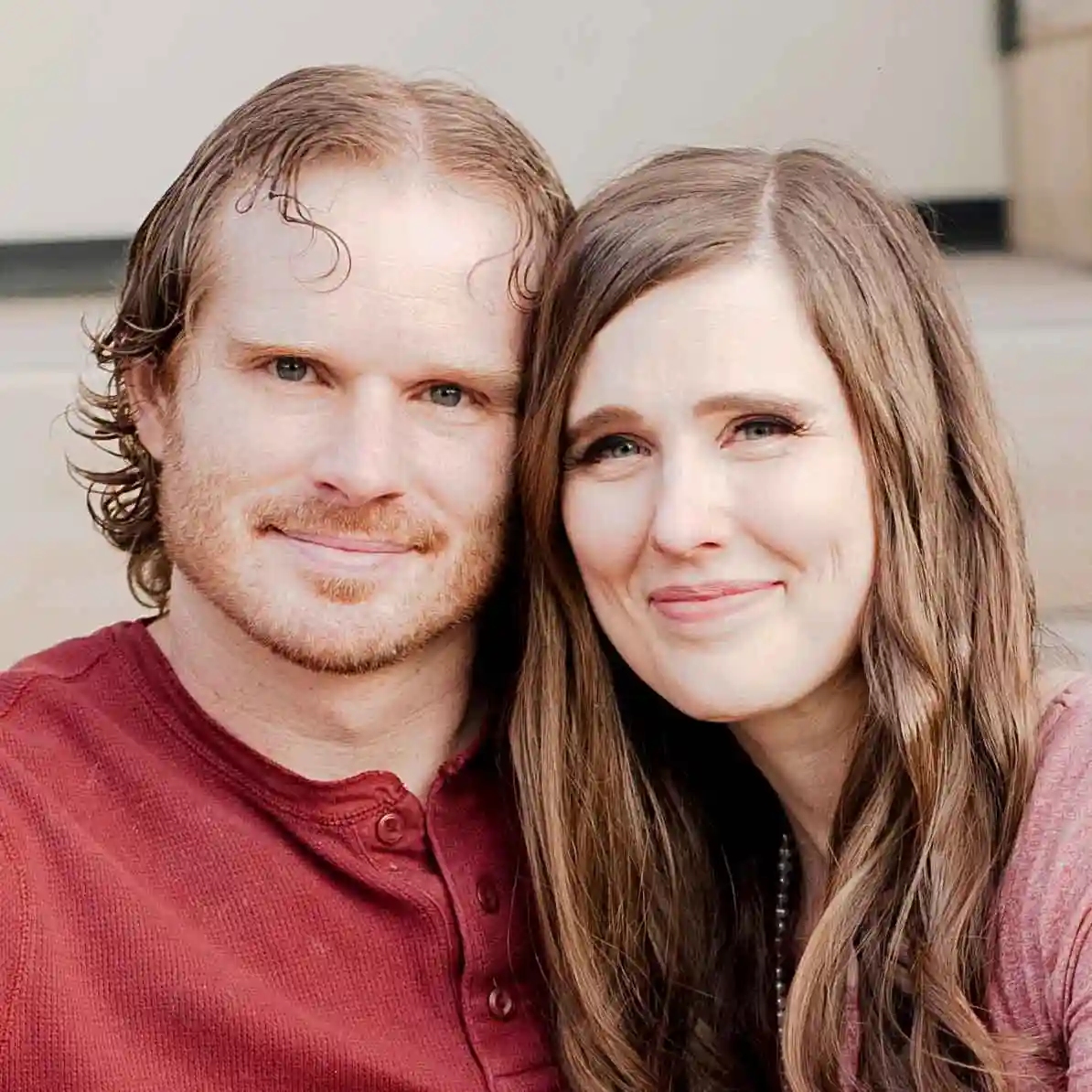Valhalla's exponentially increasing popularity in its five-year run so far easily hints Broadway potential
Returning for its fifth year running, Stephen Gashler's "Valhalla" was recently voted by patrons of Spanish Fork's Angelus Theater as the theater's show of the year. The story shows a young man, Sven, in his first Viking voyage during the Norsemen's raids into Saxon England. The play captures the intersection of cultures on multiple levels. It portrays an ongoing dialogue between the pagan Viking and Catholic Saxon cultures: Sven, separated from his brothers in arms after a feisty young nun knocks him out during the raid, and Mary (that feisty young nun) sail to find Sven's lost father. The two hot- headed characters gradually come to appreciate what is beautiful and good in each other's traditions and get to assess the good and bad in their own. Weaving playful banter and lyrics with somber and harrowing moments, the play combines deeply philosophical journeying with roaring fun.
A second cultural intersection is the show's blend of musical styles, which can best be described as "Rogers and Hammerstein met Van Halen, and both came away happy." The scores variously blend playful lyrics, operatic vocals, and masterful original electric-guitar scores, in a truly syncretic blend that metaphorically captures the meeting of cultures in the story while somehow doing full justice to all of the musical traditions it draws from.
The story also has a rich family-history aspect to the narrative, as Sven's father (who we learn died years before Sven's voyage) guides him as an unseen figure to find his gravesite and learn his final story. His father then gets to greet Sven personally in Valhalla during the hero's own near-death experience, then unexpectedly defends his son's decision there to renounce their culture's glorification of violence and his subsequent steps to take their heritage in a new direction. In the process, Sven and his father spark Ragnarök, "the Twilight of the Gods," when in one of the play's best moments, Sven's words cause Valhalla's warriors to realize their enslavement for Odin's bloodthirsty entertainment, and drunken, dead Viking warriors battle Valkyries as they vow to "overturn every brick."
Though Sven does not convert to Mary's religion (nor Mary to Sven's), in the penultimate scene he captures the heart of it by offering his own life to save his enemies when his fellow vikings return in force to raid the Saxon knights' keep. As he bleeds following a confrontation with his brothers in arms to save the men who had early attempted to kill him and kidnapped Mary, Mary quips "Through a terrible price, you have taught me of Christ."
Valhalla's exponentially increasing popularity in its five-year run so far easily hints Broadway potential, while still remaining fully family-friendly in every way. The talented, comedic acting, the catchy songs, and the story's layered symbolism make the play worth coming back to see repeatedly to appreciate on new levels with each showing.
Paul Johnson
Theatre Review
Review of Valhalla 2024
I have attended "Valhalla" every year since 2021. I love the music and singing, and especially that there are changes and improvements to the production/directing/story every single year!
The articulation this year was some of the best you've ever done. The costumes, hair, and makeup were excellent and culturally realistic! I was surprised that Sven did not have the Viking face paint as he has in previous productions, but loved that a younger-looking actor played him, next to the grown men and women Vikings. It made him LOOK like it was his first voyage/raid! His emoting was also the best I've ever seen from 'Sven.' It really felt like he was hesitant to pillage and kidnap!
Also enjoyed how you placed the three boats this year. Other years it has felt that the boats crowded the stage. The various 'wave/weather' dances were interesting and helped indicate more of the weather they were sailing through!
Sir Hector's acting and singing this year was as excellent and amazing as 2021's production! Good job! That is high bar to reach! Brunhilda being pregnant this year was fun and especially how Mother Molly was incorporated into her story line! I loved that Brunhilda got the "Let's go raid the French" line as well. That line is always funny, but for it to be given to a woman who just gave birth to twins was hilarious!
The electric guitar playing on stage this year and last was awesome!!!! Keep up the excellent work!
R. C. Peterson
Theatre Review
A Review of "Valhalla | A Viking Rock Opera"
I attended two performances of “Valhalla, A Viking Rock Opera” on 4 June 2025 CE and 7 June 1015 CE at The Angelus Threatre in Spanish Fork, Utah. Both performances started at 19:30.
I really enjoyed this show. There are a number of plots, subplots, and stories from heathen lore in this play. The main plot seems to be a love story … boy meets girl, they don’t get along, then they fall in love, almost loose each other, and find a way to end up together.
Another almost main plot (this starts out as the main plot bu ends up overshadowed by the love story plot) is the struggle between Heathens and Christians during the Viking era. I found myself comparing this story line to a similar story line in the Nobel Prize winning “Master of Hestvikin” by Sidgred Undset.
In Heathenry there is the concept of The Alfar and the Desir”, male and female ancestors of those alive on Midgard. The Alfar and the Desire watch over and help those alive on Midgard. The show highlighted this by having Sven’s Father helping him.
There are other concepts from heathen lore… this show is based on the concept of “Die in Battle and go to Valhalla and those who do not die in battle go to Hel.” The Einherjar in Valhalla will fight with Odin at Ragnarok. Those in Hel will fight on the other side, against Einherjar. Valykries carry the battle slain to Valhalla or Folksvang (Freyja’s hall). Those who go to Folksvang are actually known as “The Carne”. Freyja is the leader of the Valkyries. Both the Einherjar and the Carne will fight on the side of the Gods and Goddesses at Ragnarok.
There are some problems with some of the story lines and the lore. Most of these can be attributed to “Poetic License”. Tyr was only the God of War until Fenris the wolf bit his sword hand off. The show did not try and convey the concept of prayer in heathenry. If you ask the Gods and Goddess of the Aesir and the Vanir for something you have to pay a price for it. The price is some sort of sacrifice. It could be beer, mead, wine or blood (yours or an animal sacrifice), or it could be writing prose praising the God or Goddess you are asking help from. If you do not pay a price, the Gods and Goddesses will take it anyway (you slip and cut yourself when working with tools, etc). The show more or less portrayed the “Christian” concept of prayer. In Heathenry we do not bow or kneel to the Gods and Goddesses. The only real issue I had with the performance was when those on stage knelt to Odin.
Hávamál (Olive Bray Translation) 144: "Better ask for too little than offer too much, like the gift should be the boon; better not to send than to overspend."
I really enjoyed the performances of Jake Oaklyn as Sven and Grace Clark as Mary. There was a chemistry there that went really deep (maybe inspired by Freyja herself). Ian Parker play Odin and Sir Hector was also notable. Thor being played by Landon Christensen was also great.
I have a fairly good knowledge of Heathen Lore and Norse Mythology. One thing about the lore, if you ask 10 heathens about something from the lore, you are going to get 12 different answers. Heathenry does not have a right way and a wrong way to do something. It has various ways that work for whoever is doing it. It would be interesting to see how this show plays to a Heathen or Pagan audience who have a good understanding of Norse Mythology versus how the show plays to a “Christian” audience with out a good understanding of Norse Mythology.
Roland Behunin; Gothi Midgard Hearth
Theatre Review
Great Hall Theatrical Experiences Electrifies Spanish Fork with “Valhalla | A Nordic Rock Opera”
Front Row Reviewers
Theatre Review
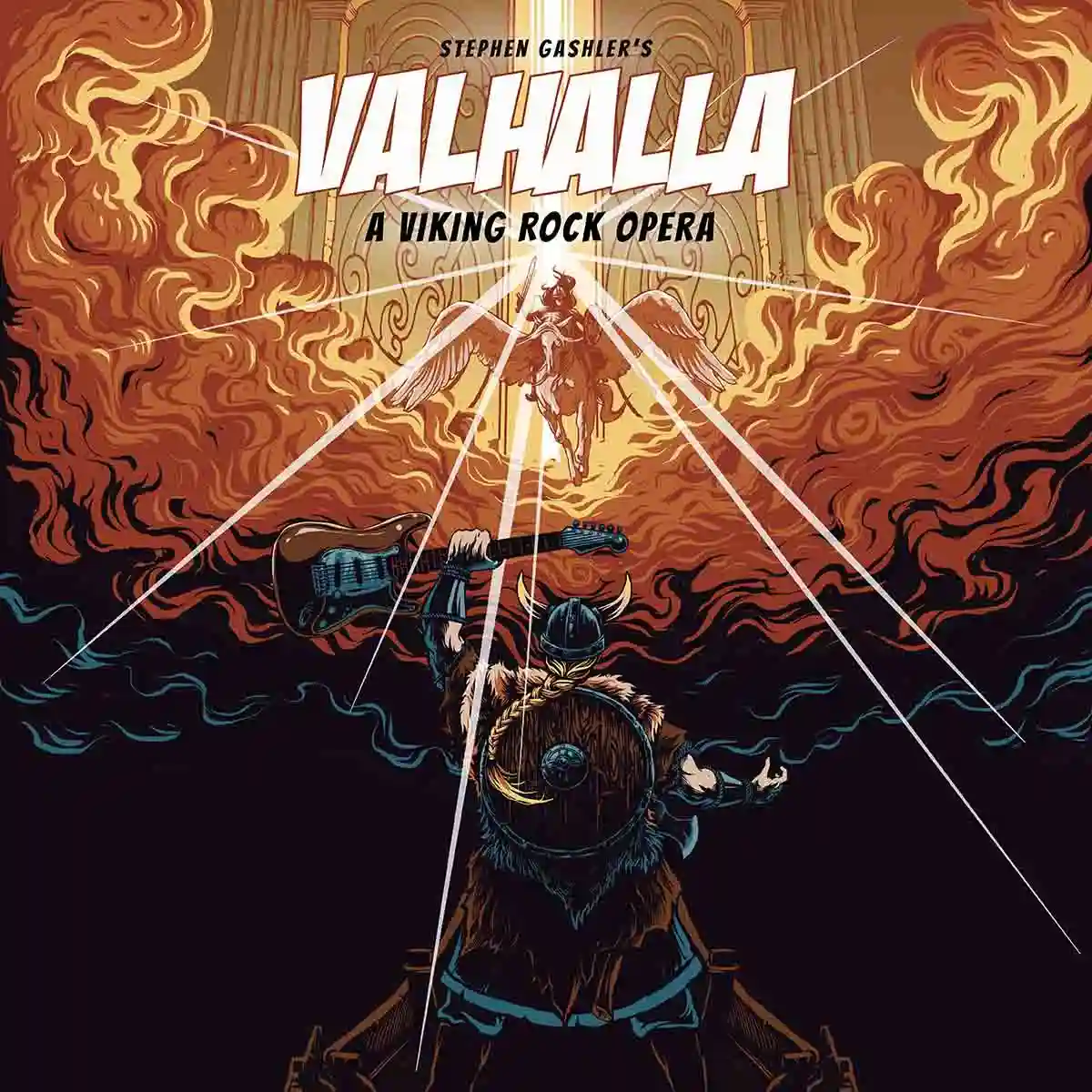
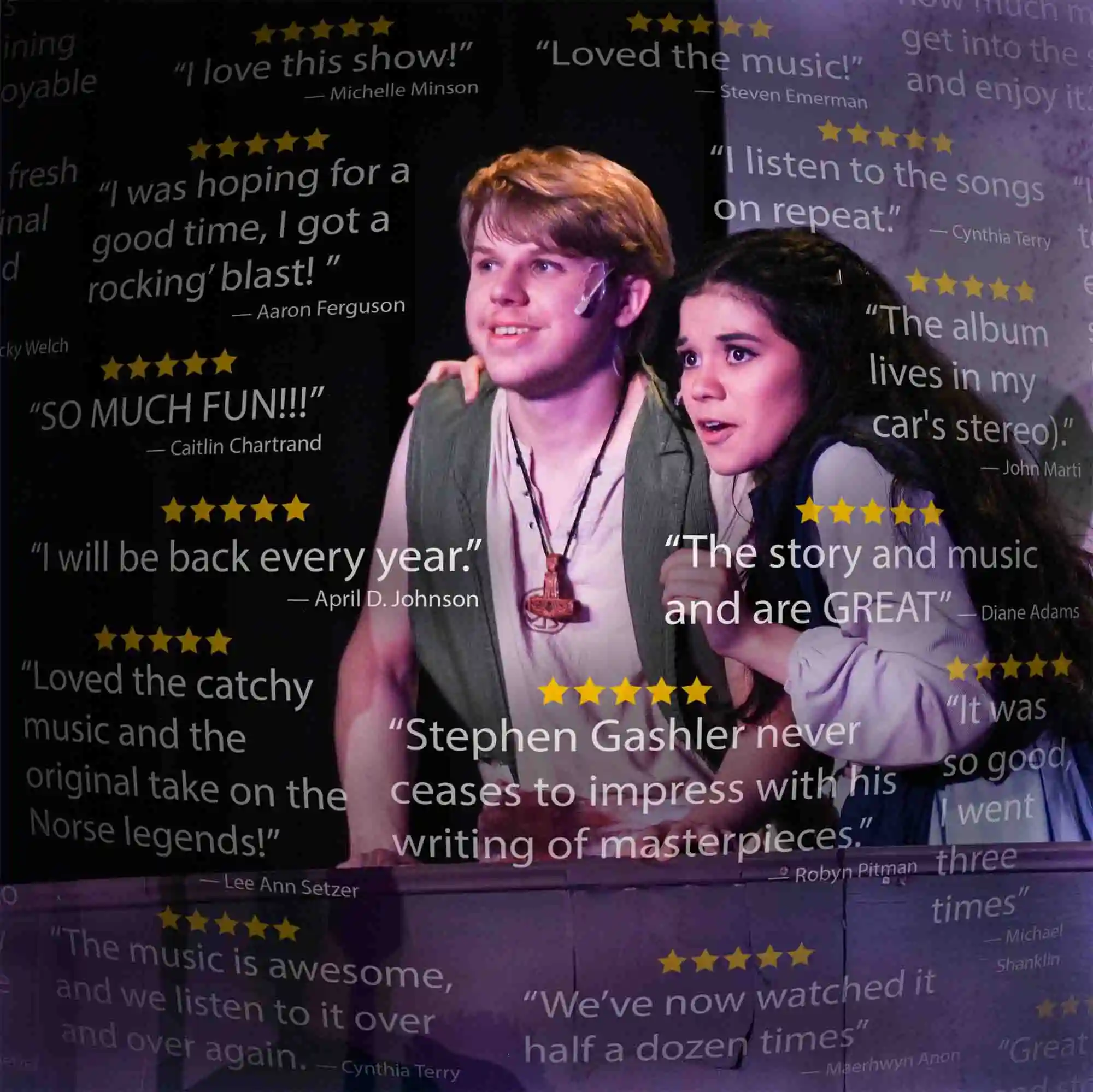




























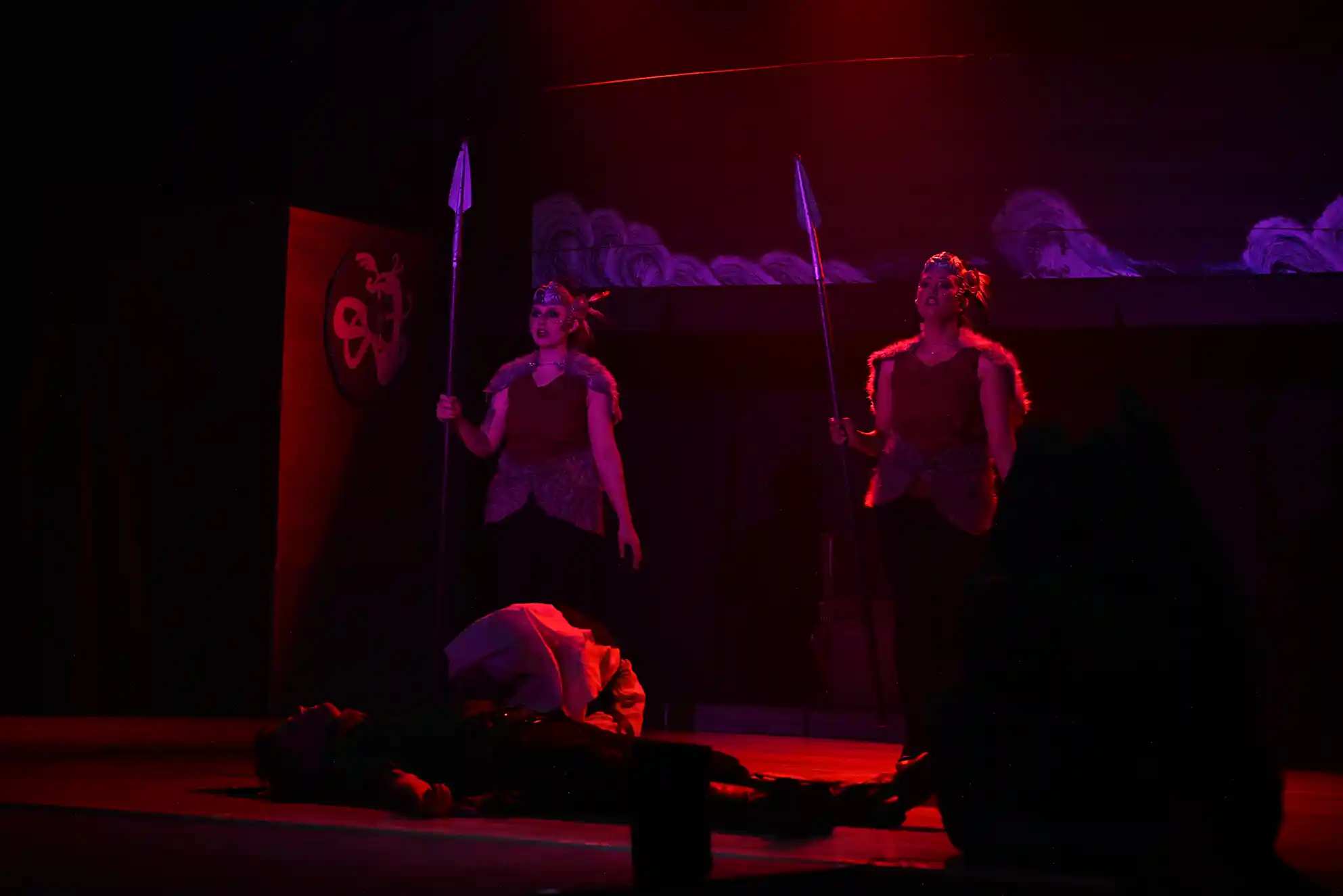
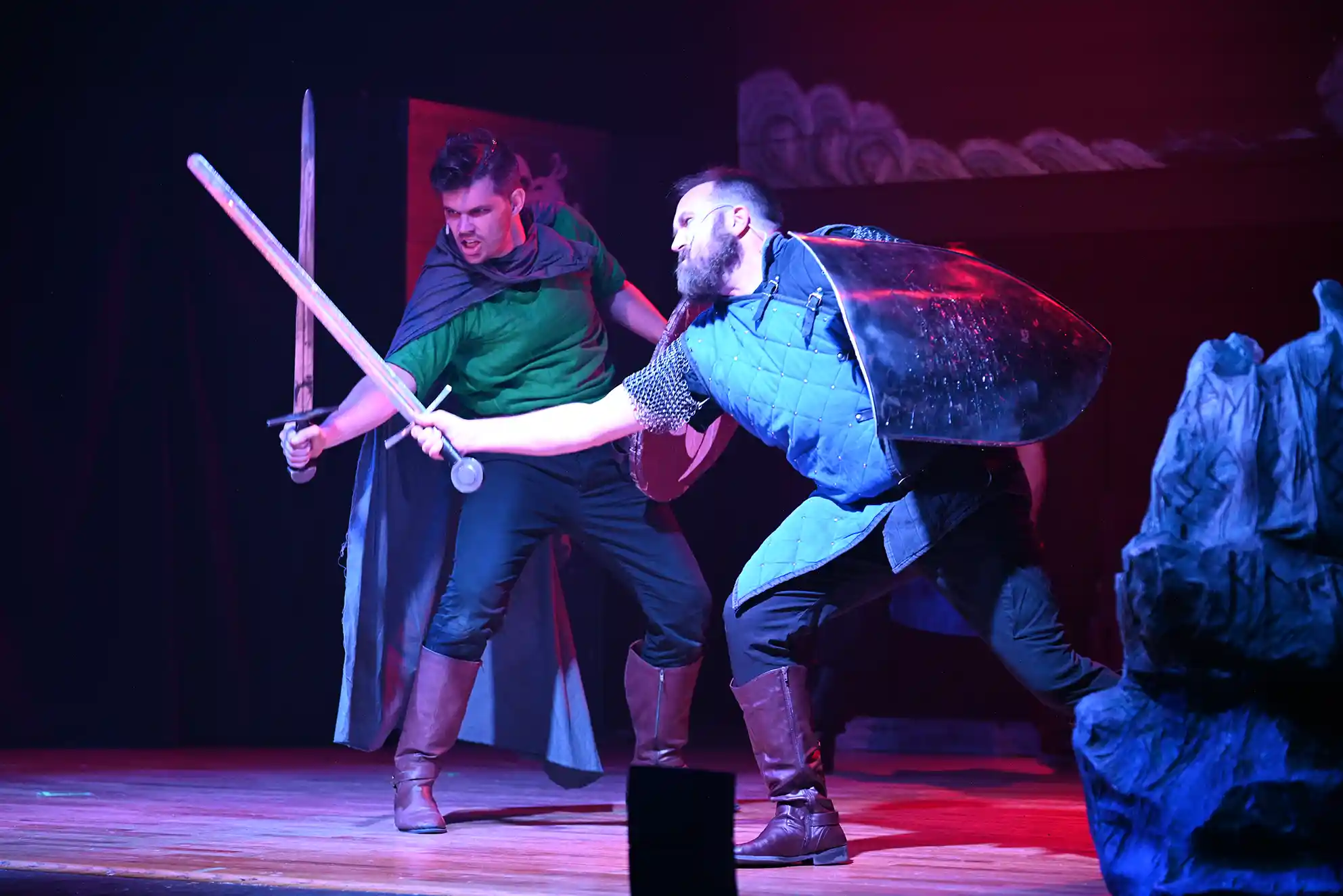
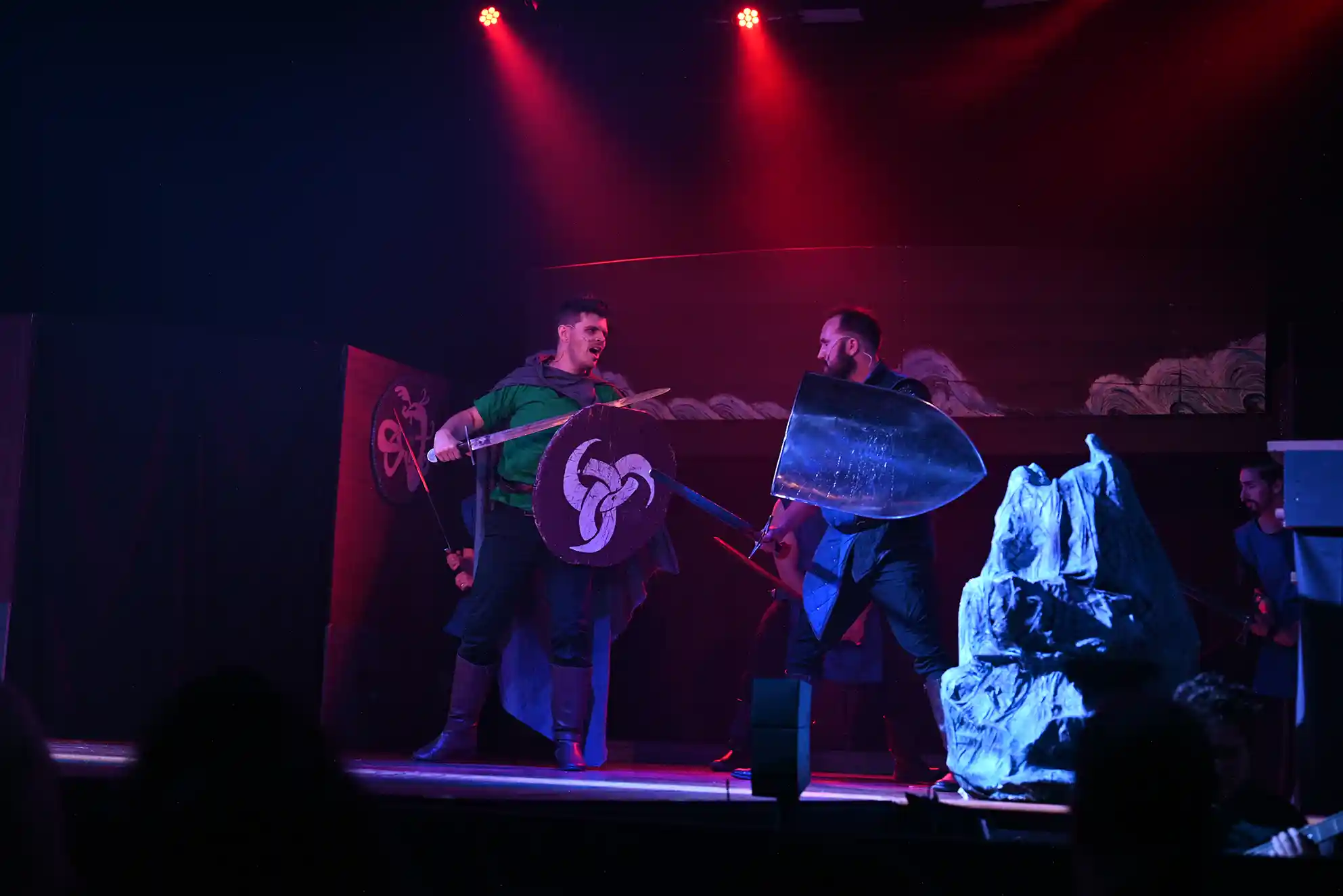
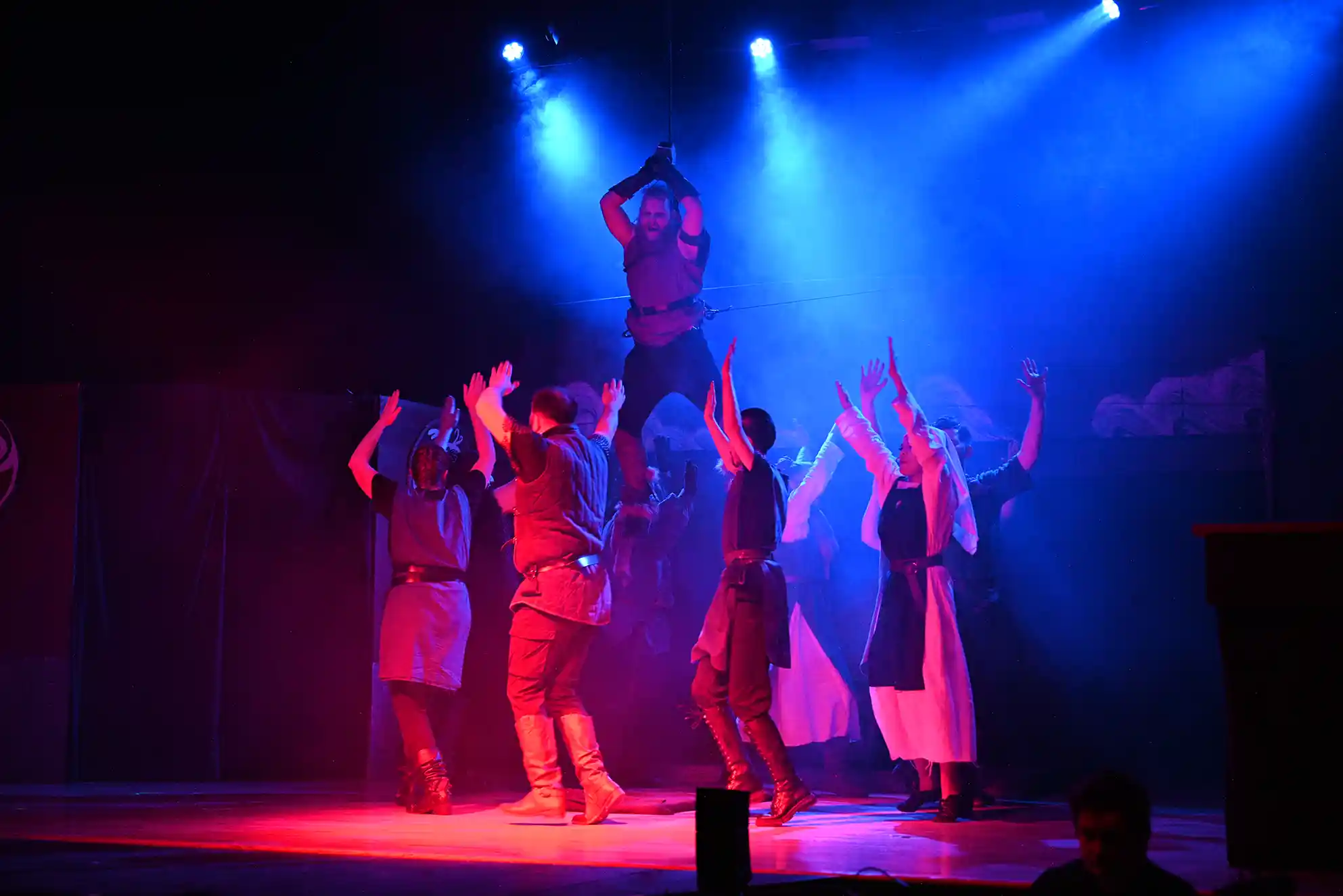
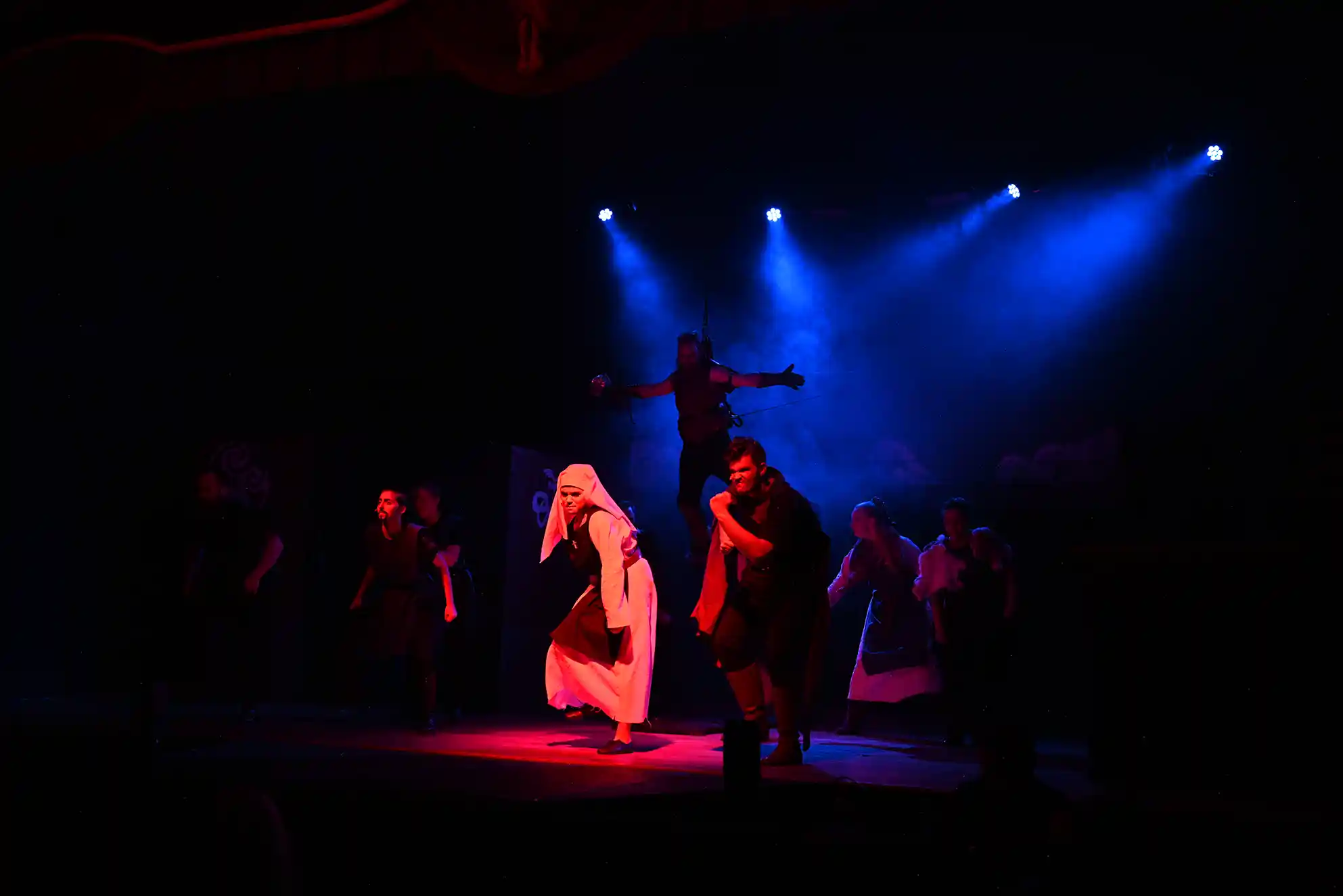
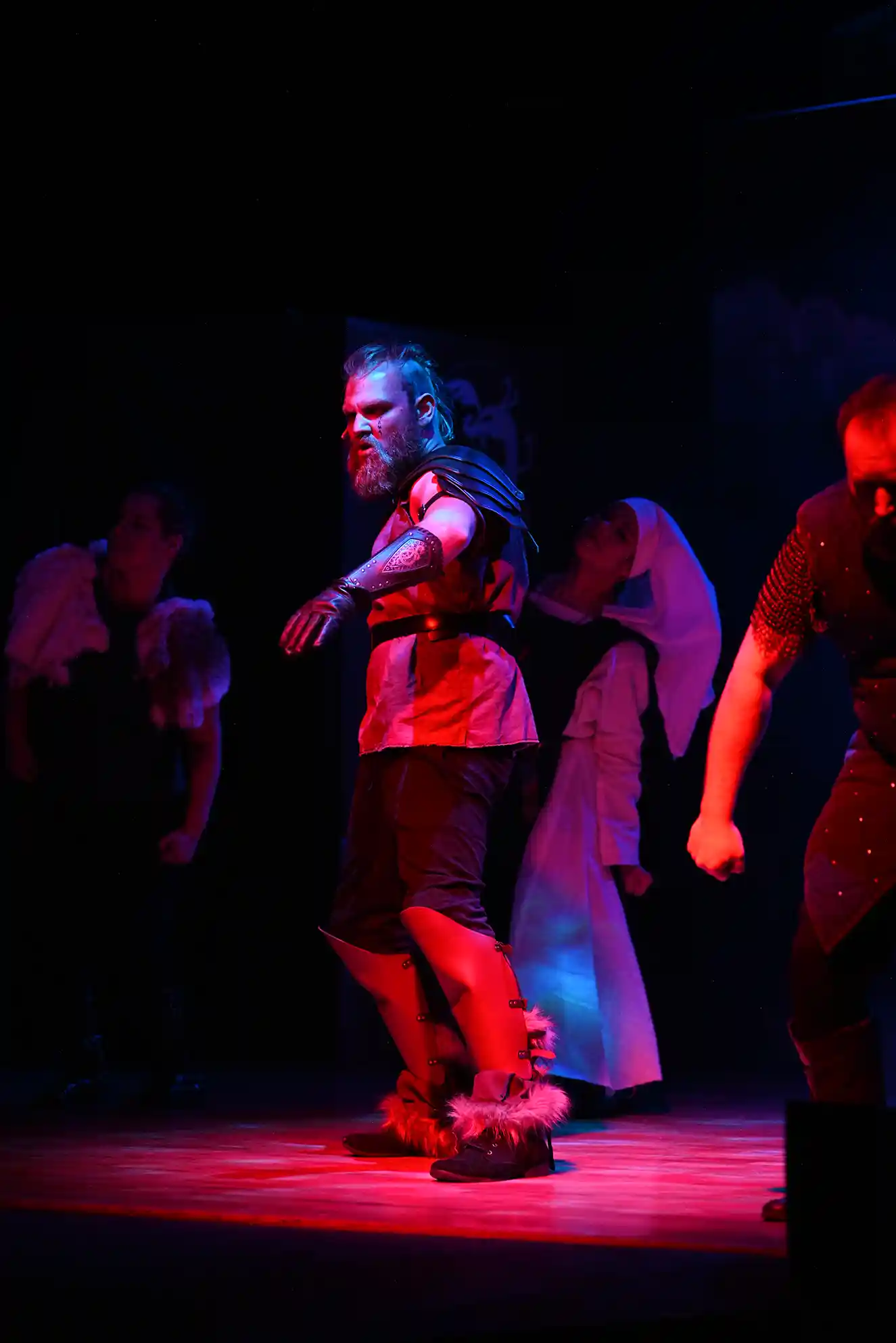
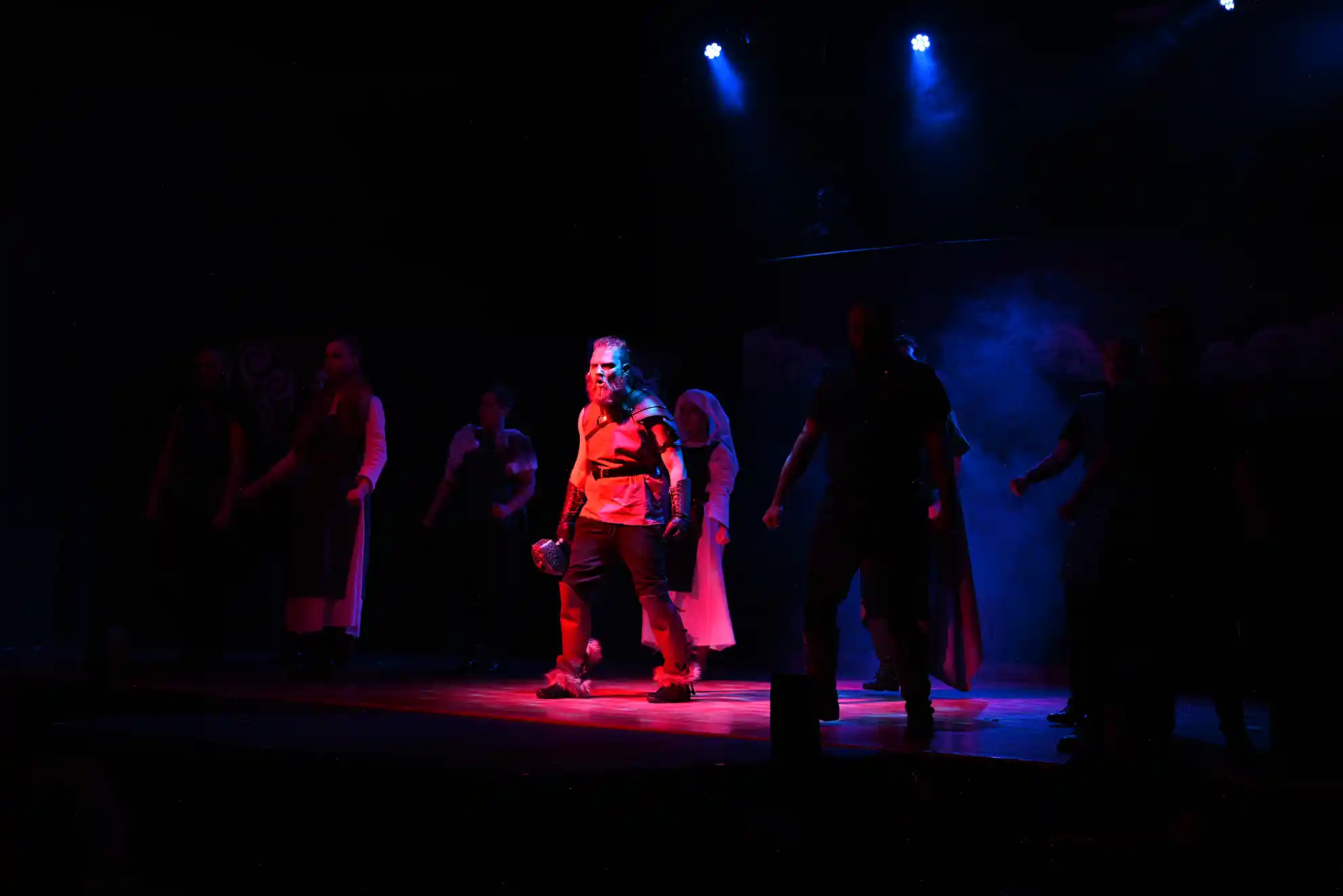
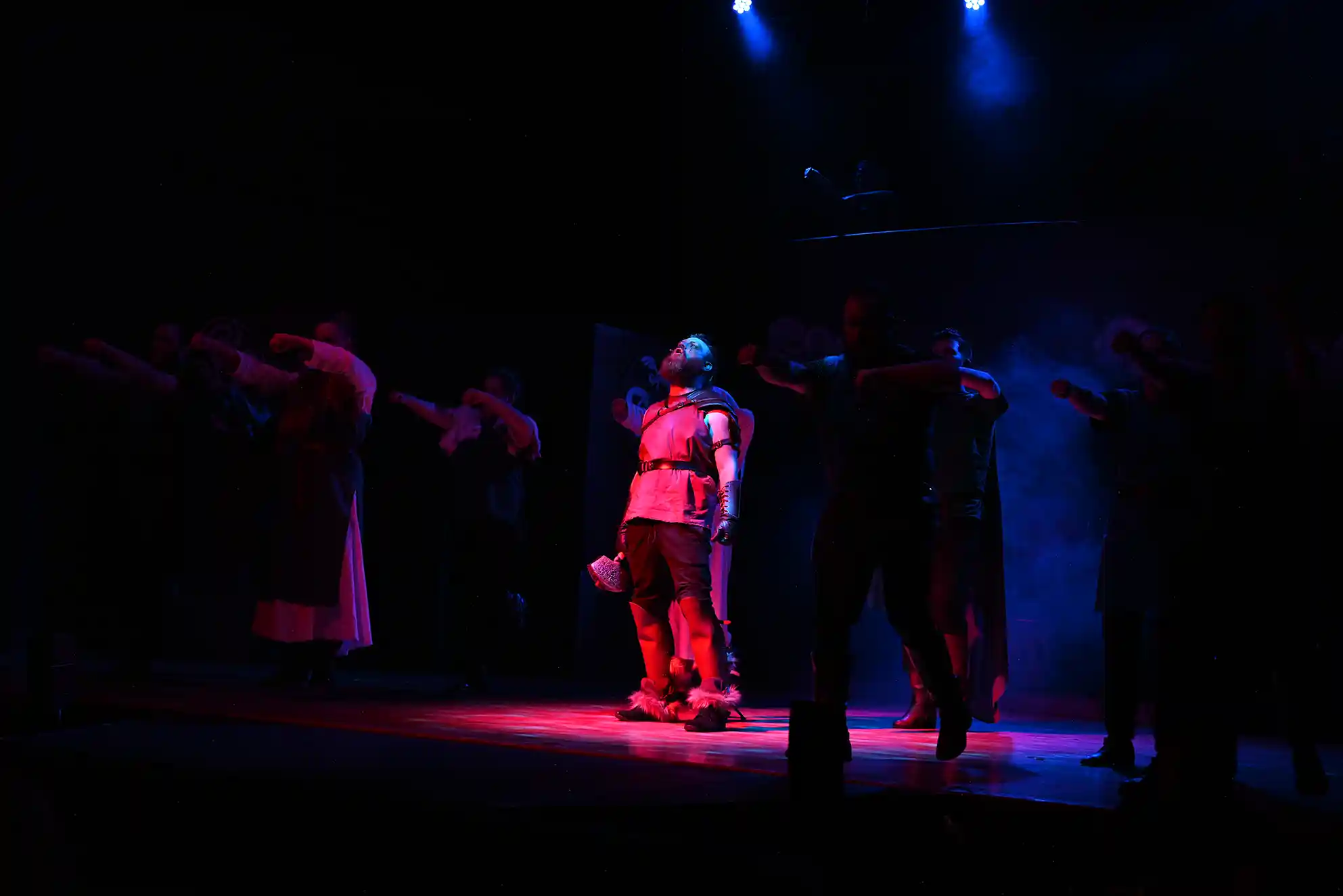
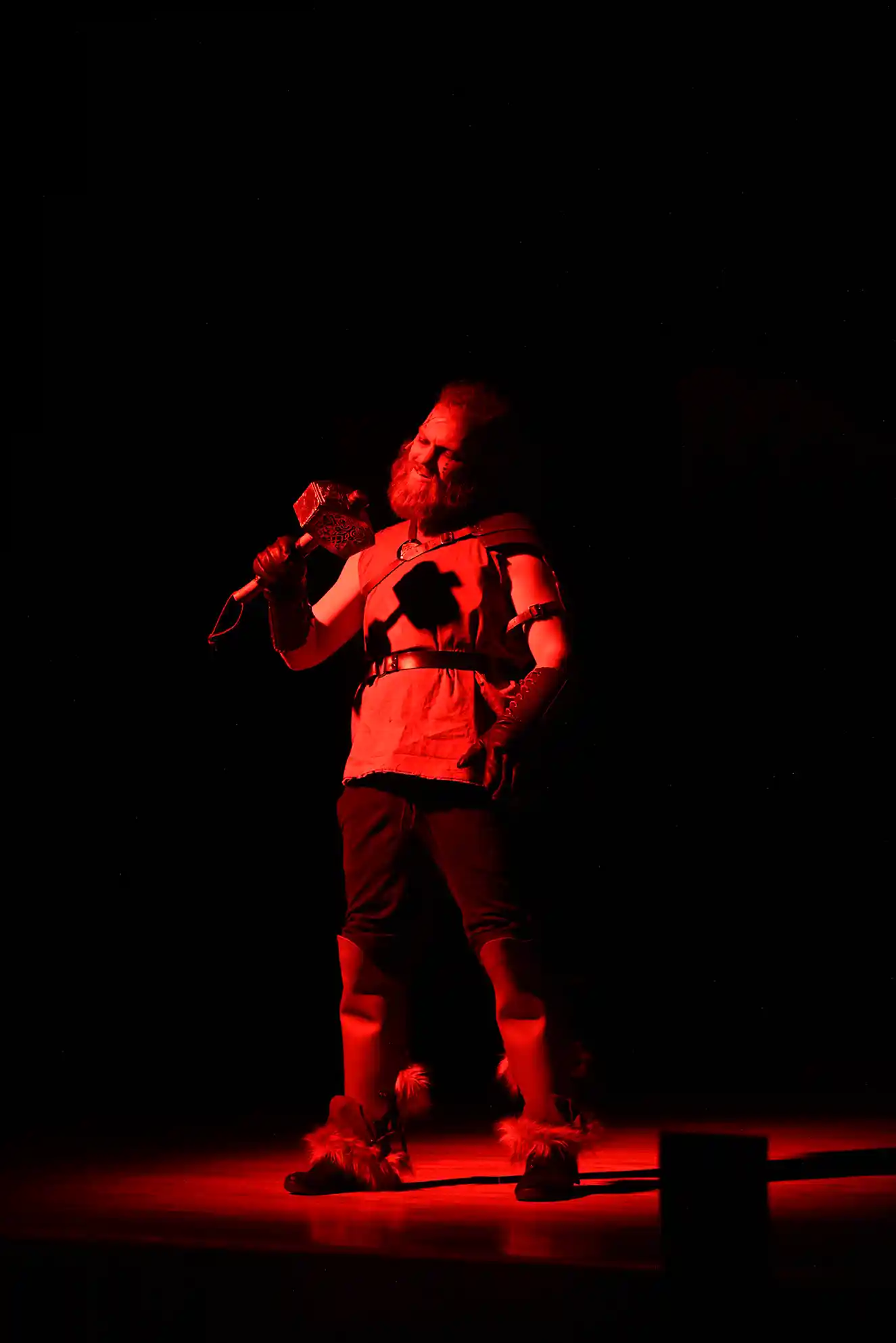
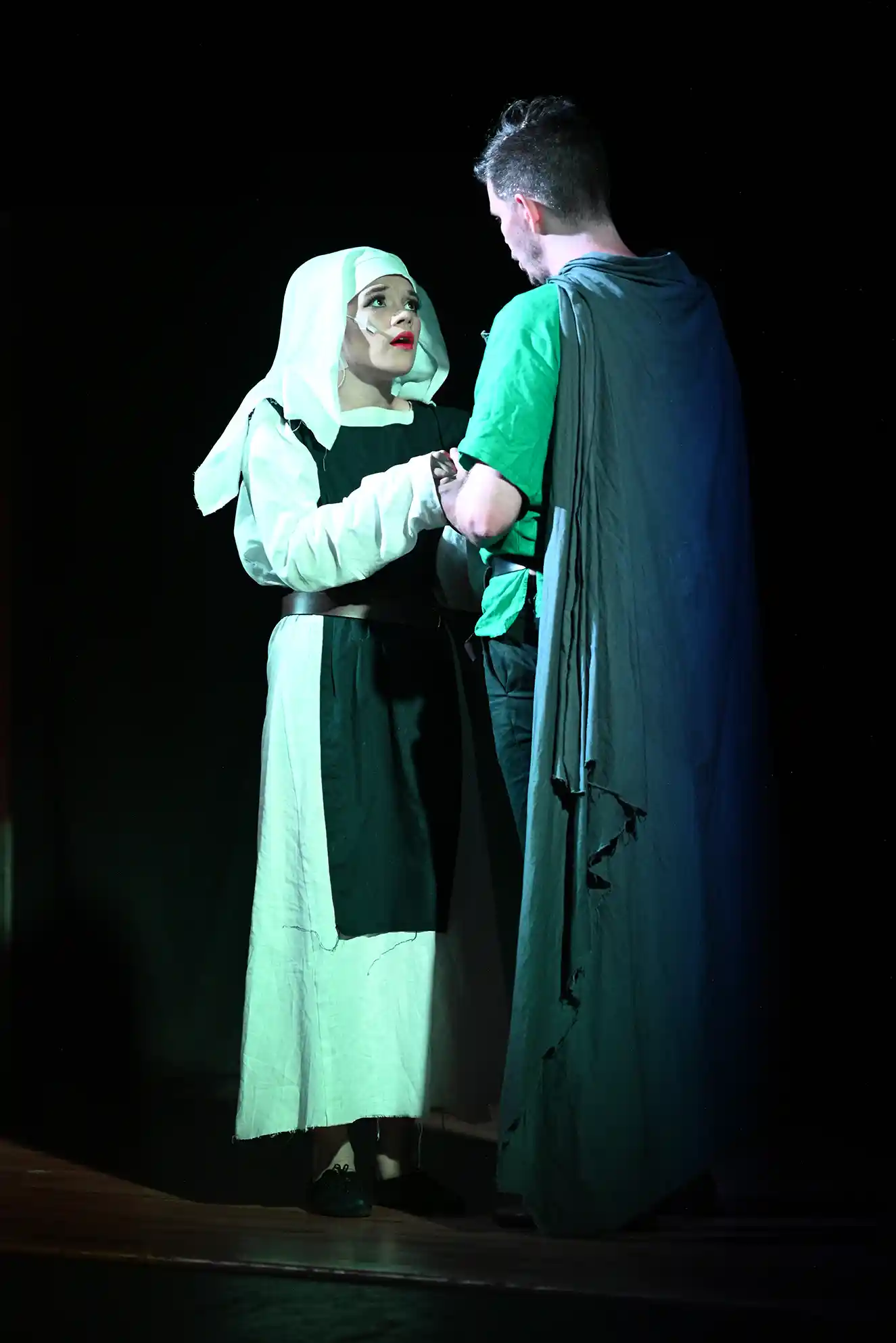
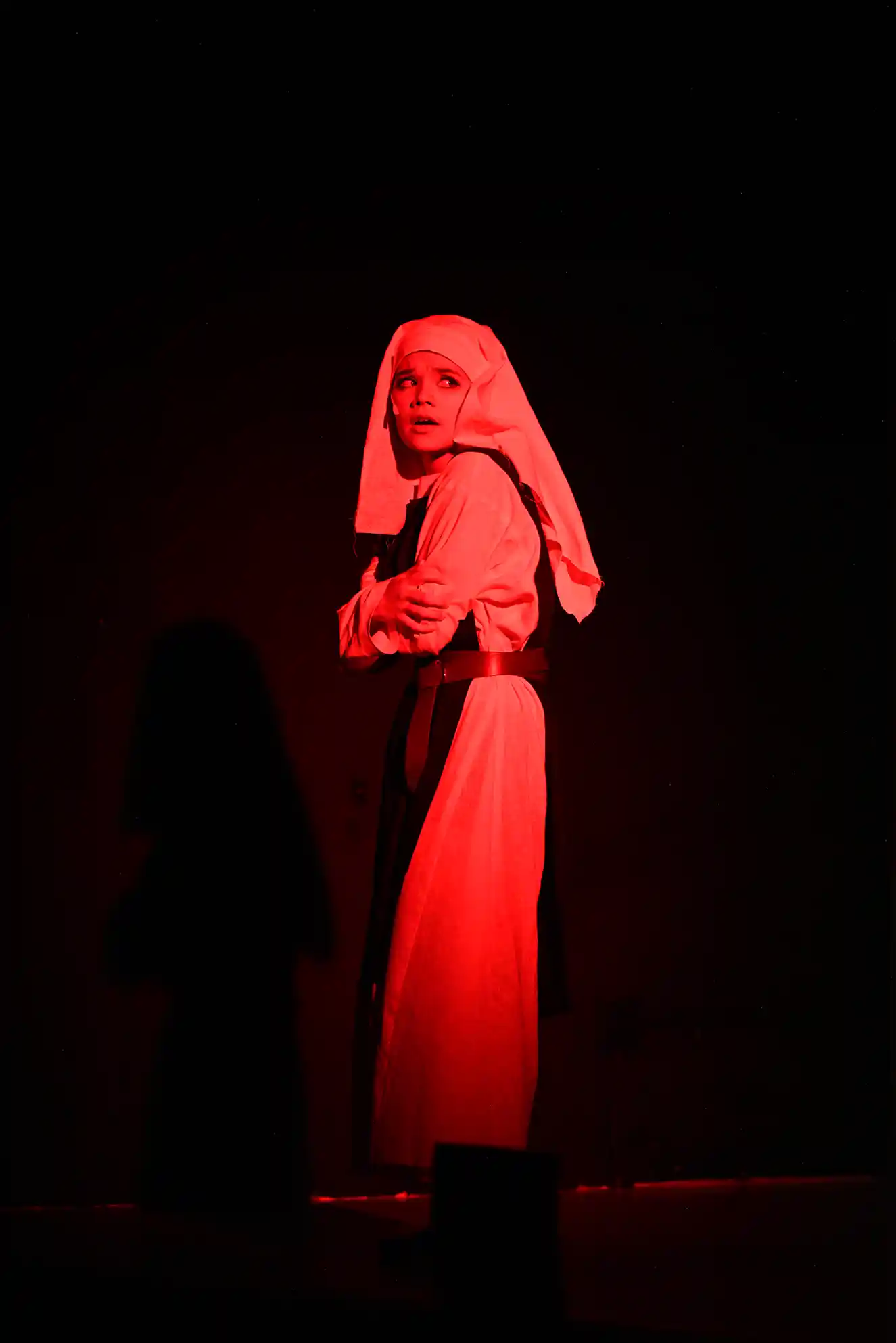
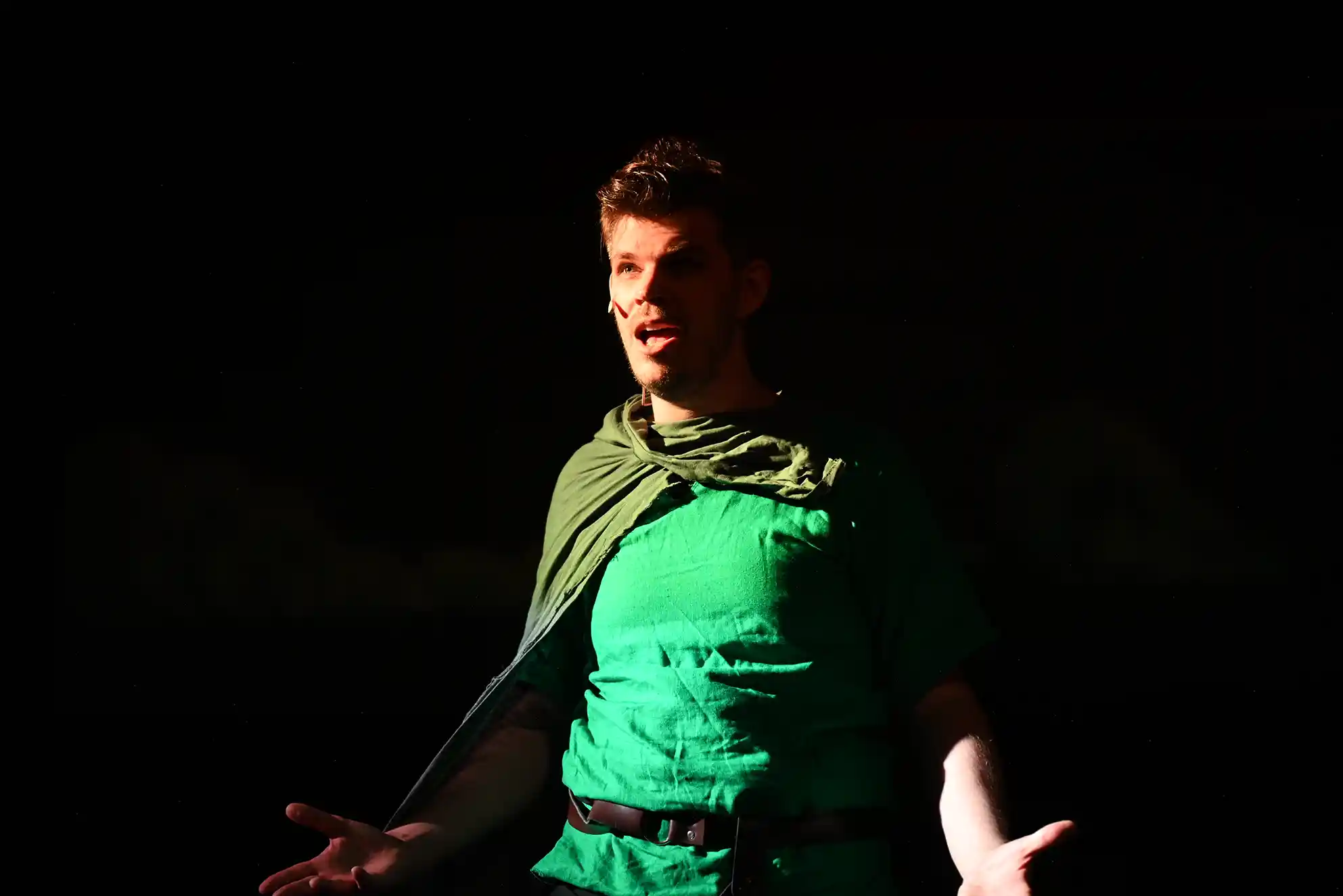
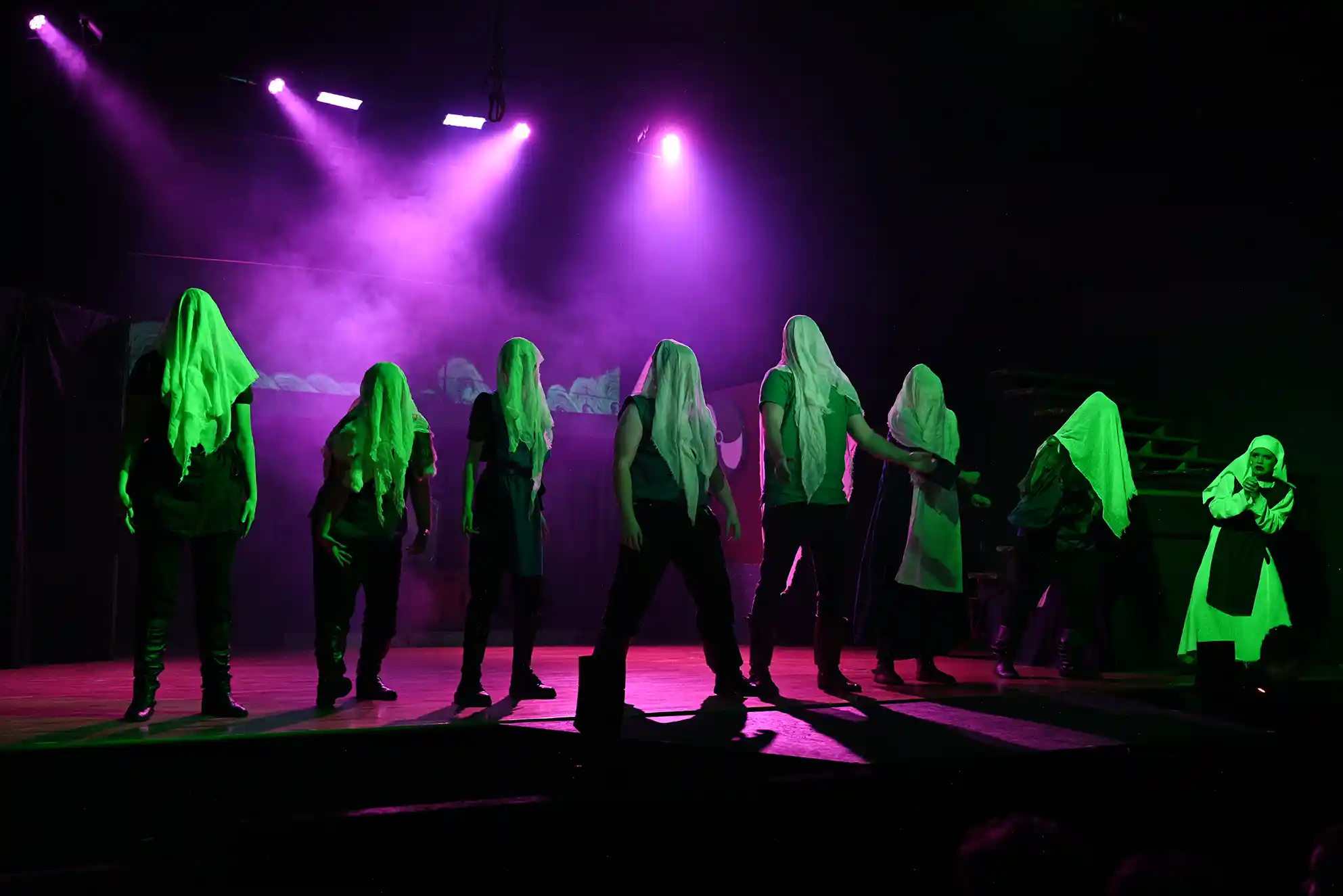
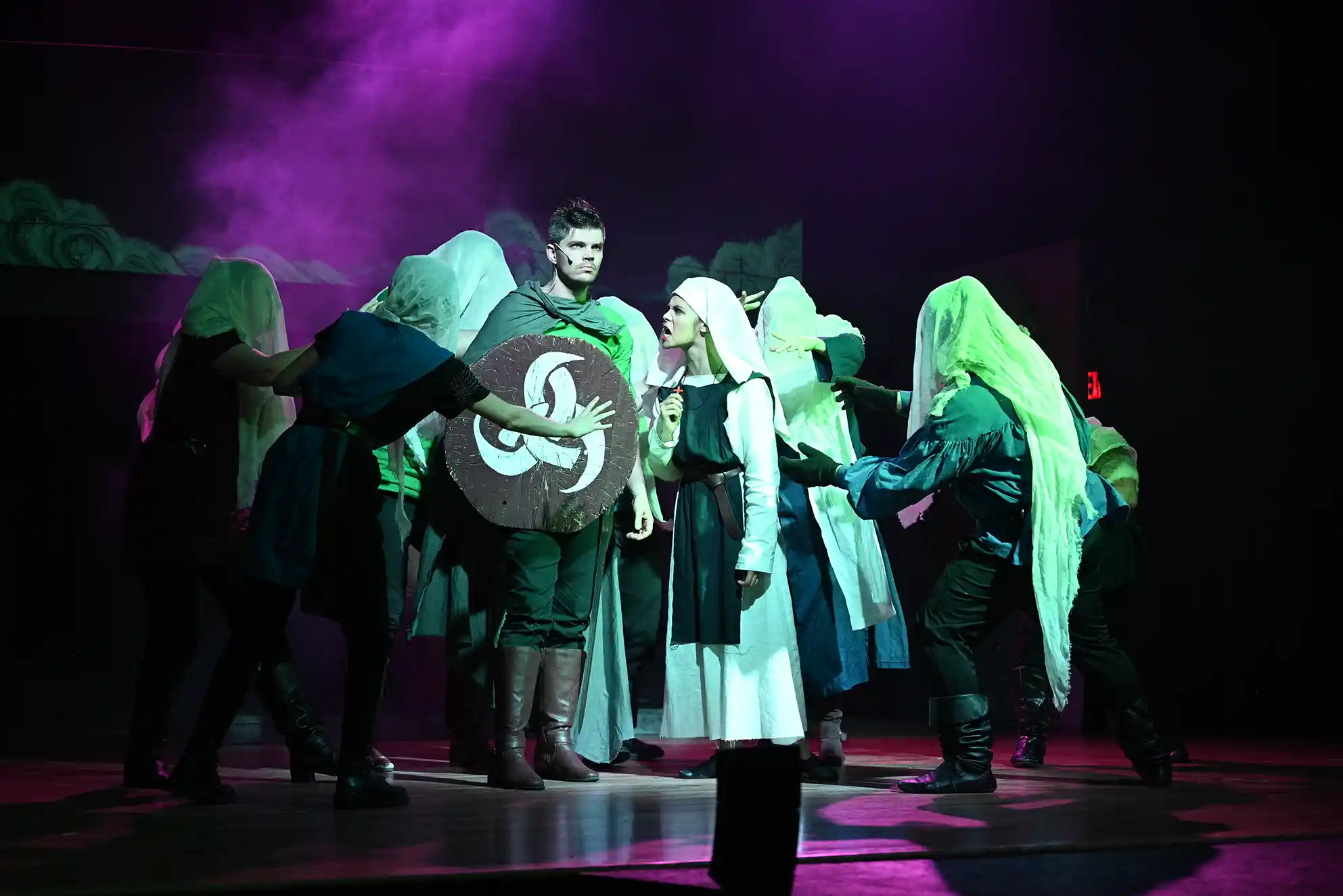
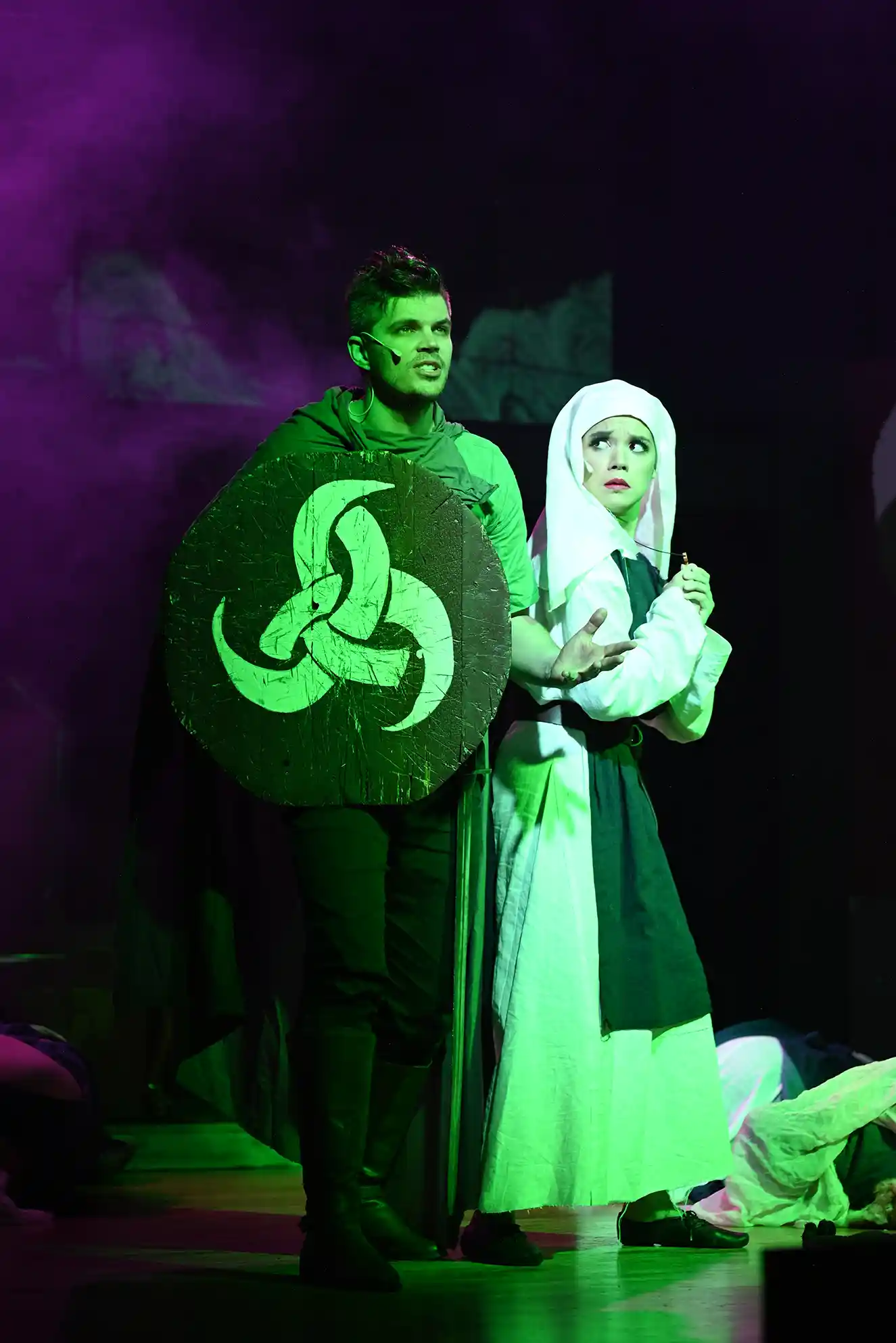
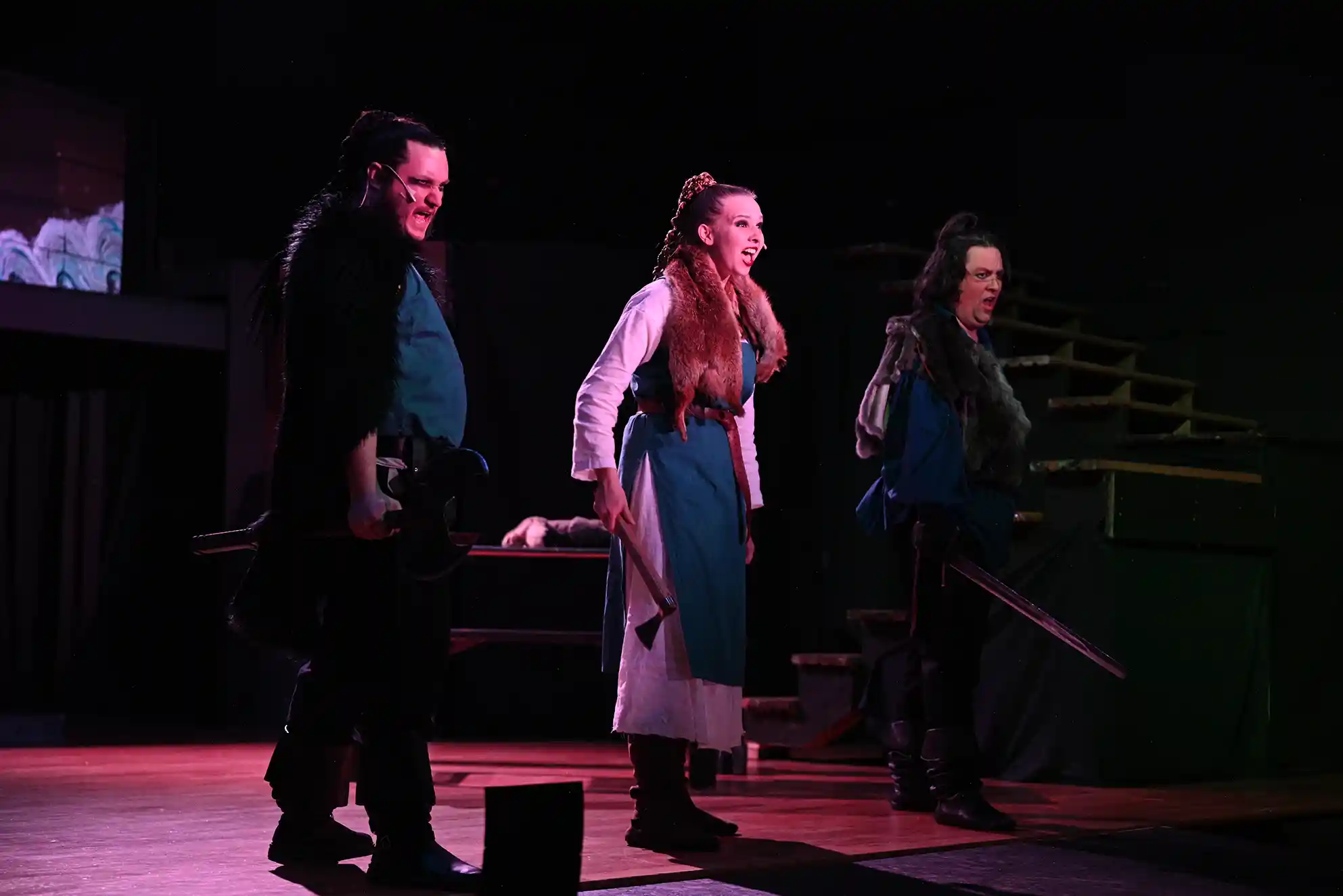
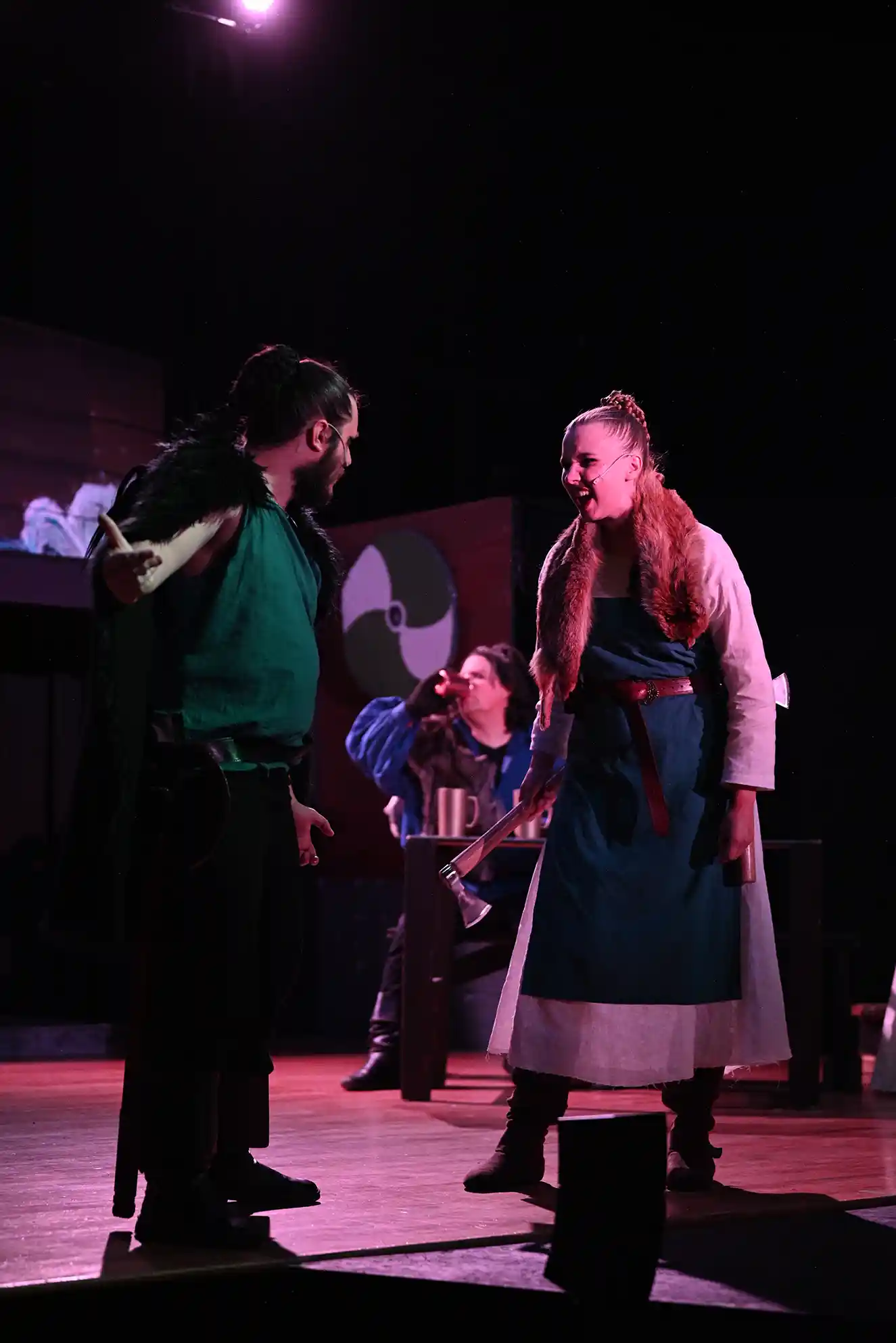
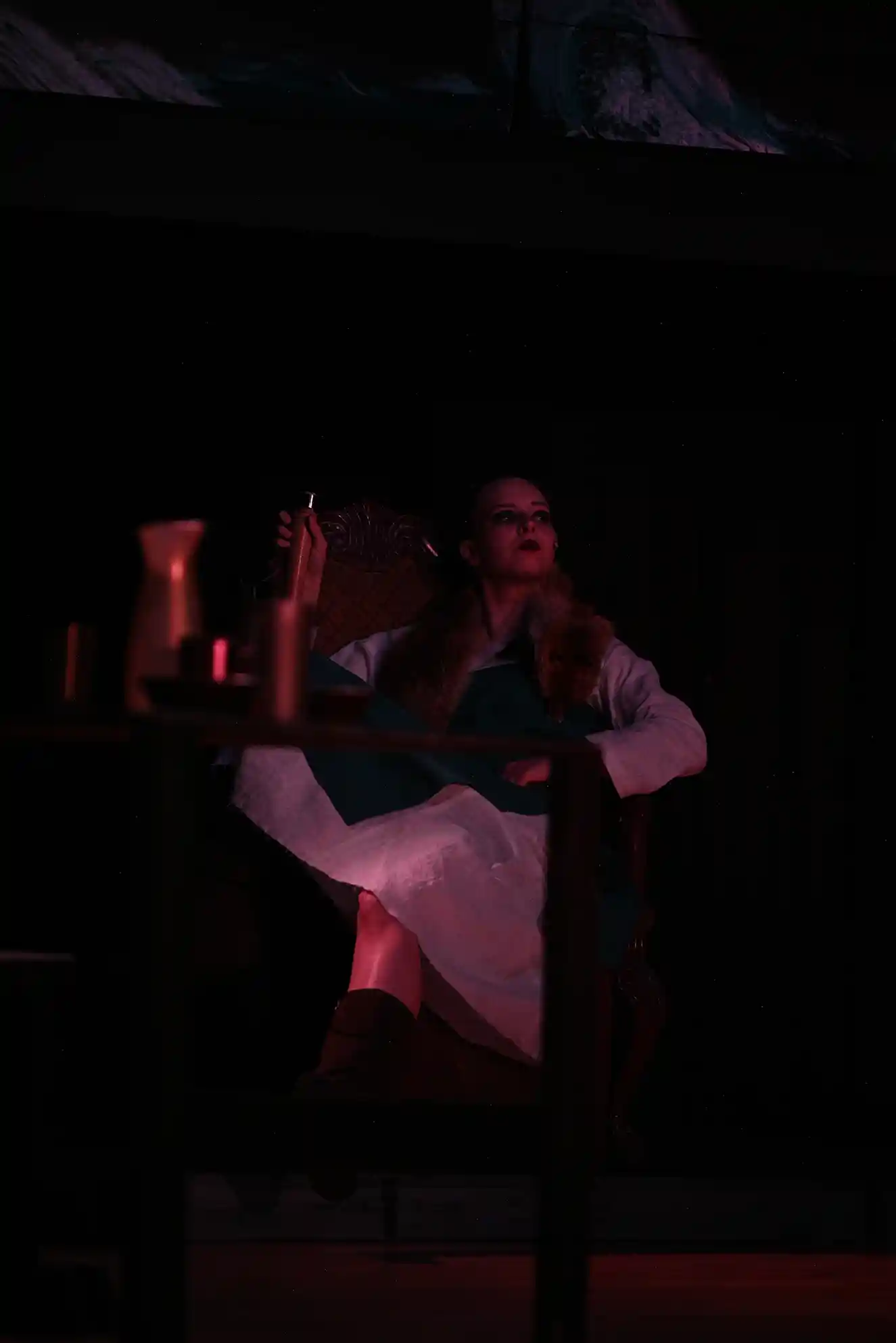
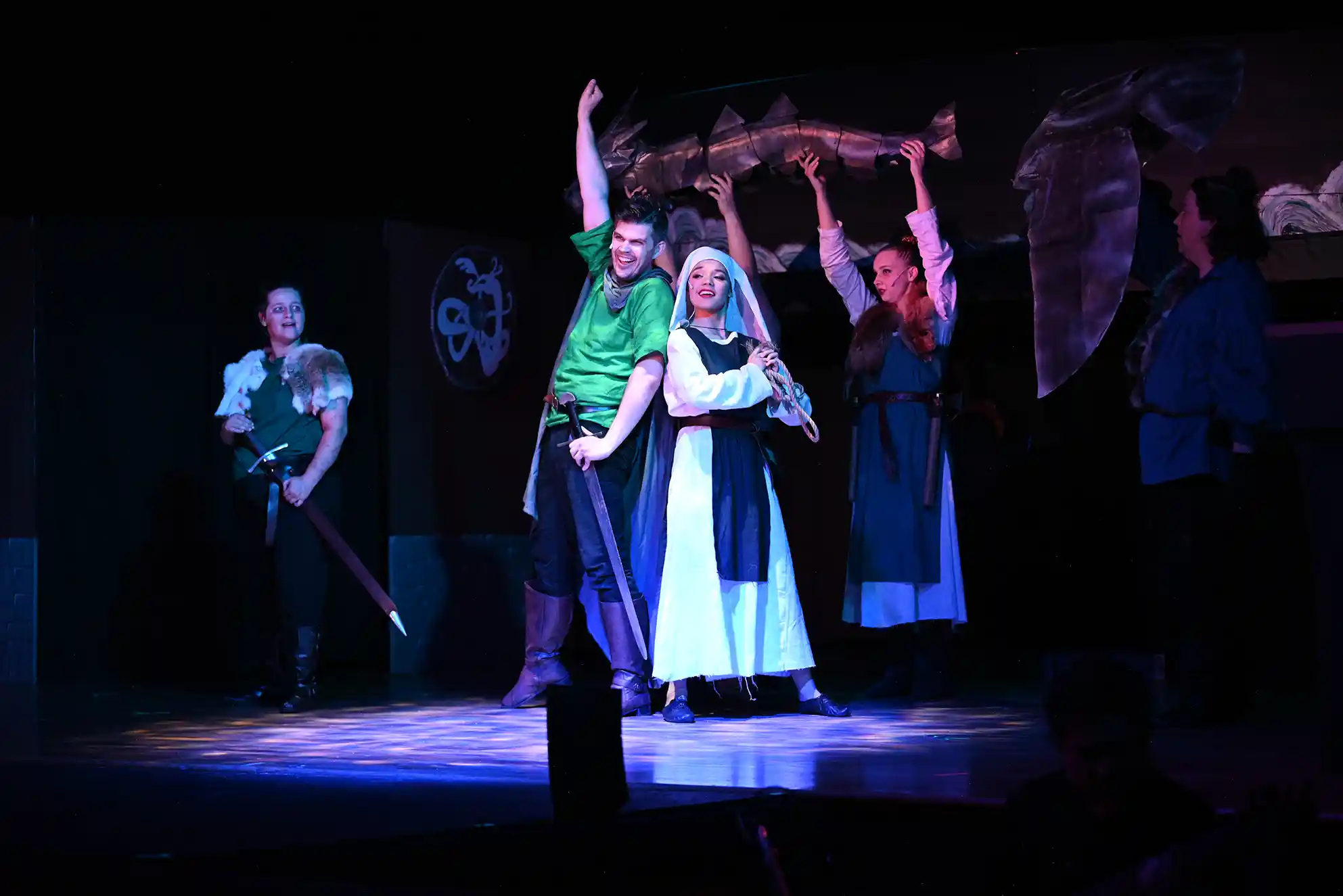
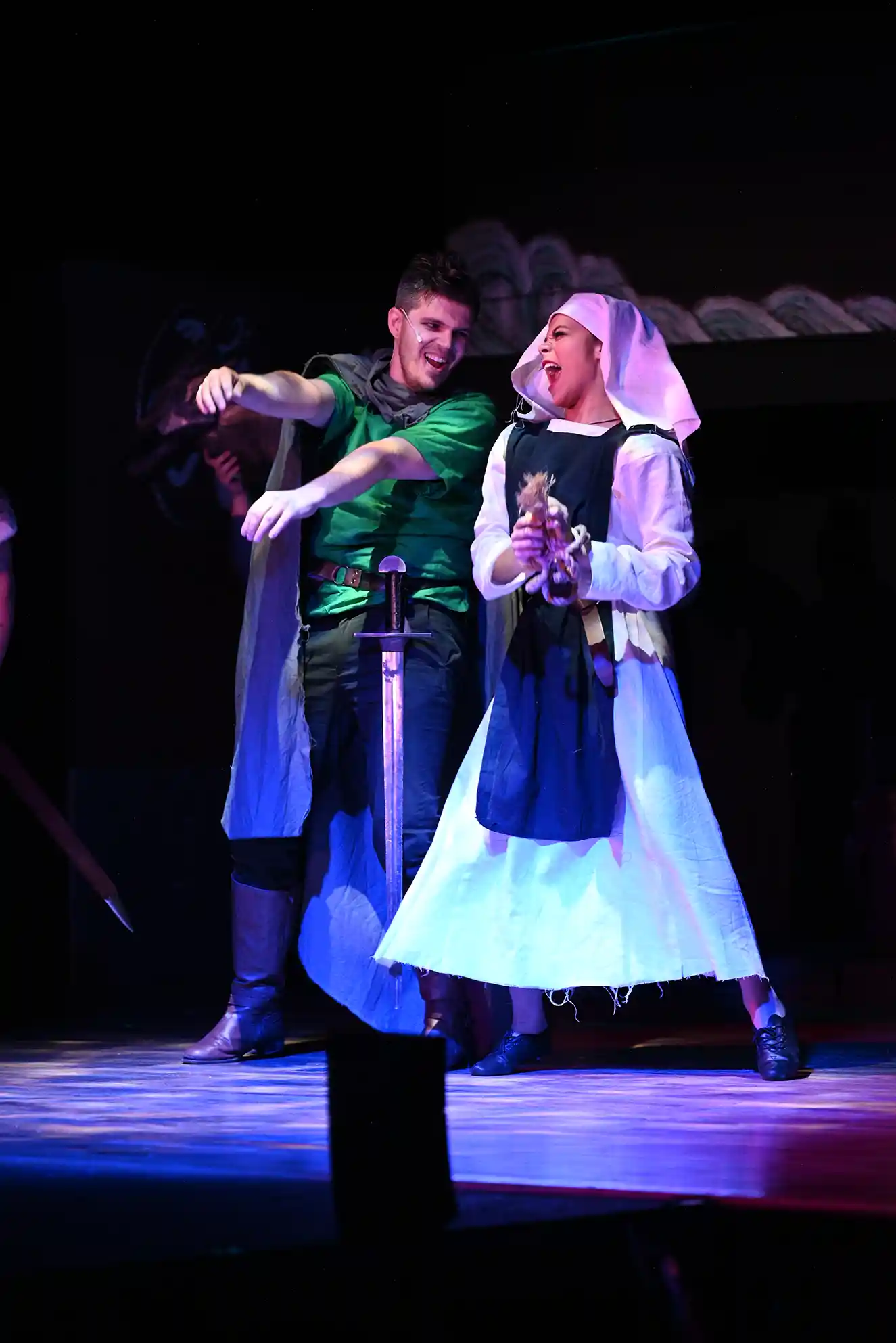
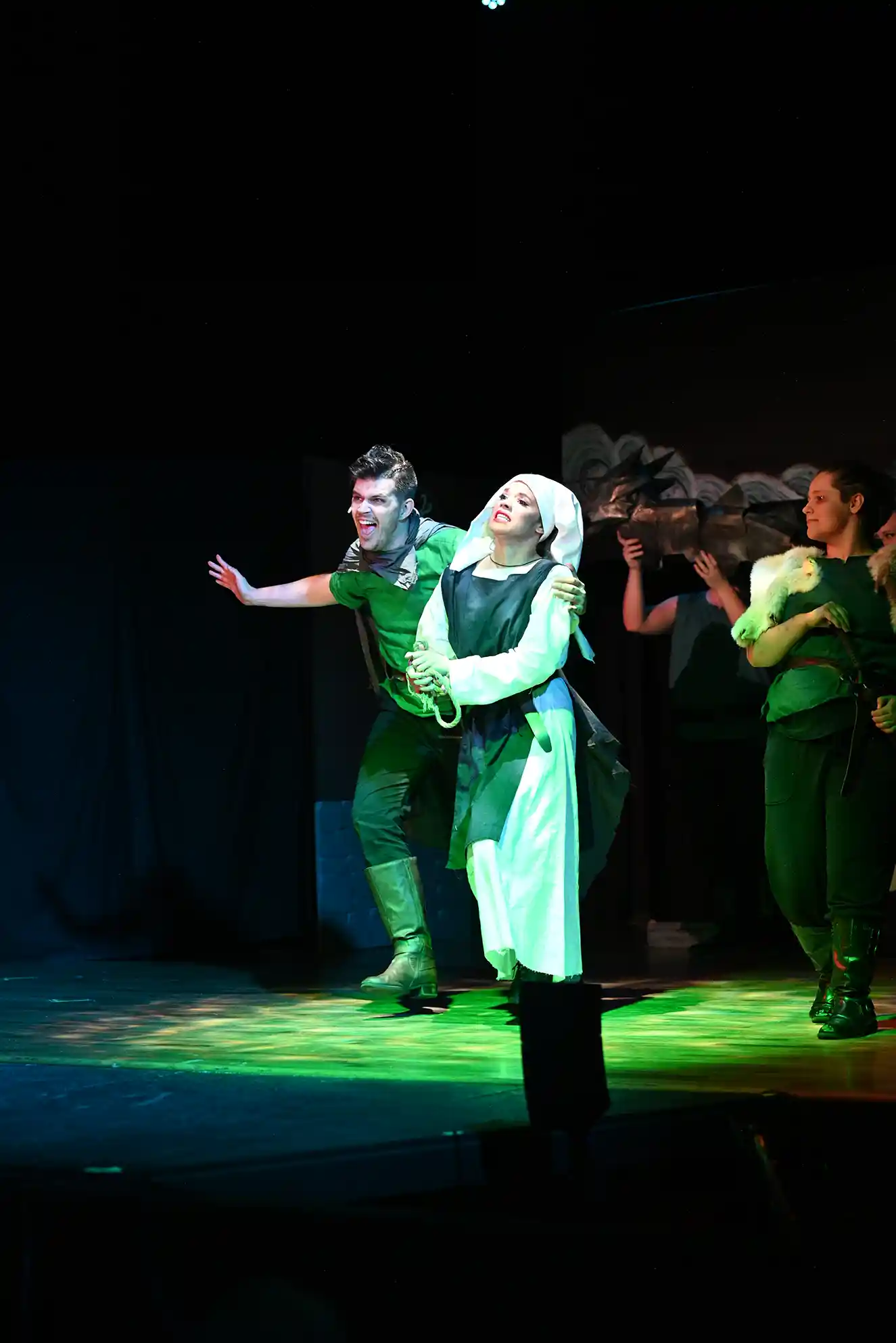
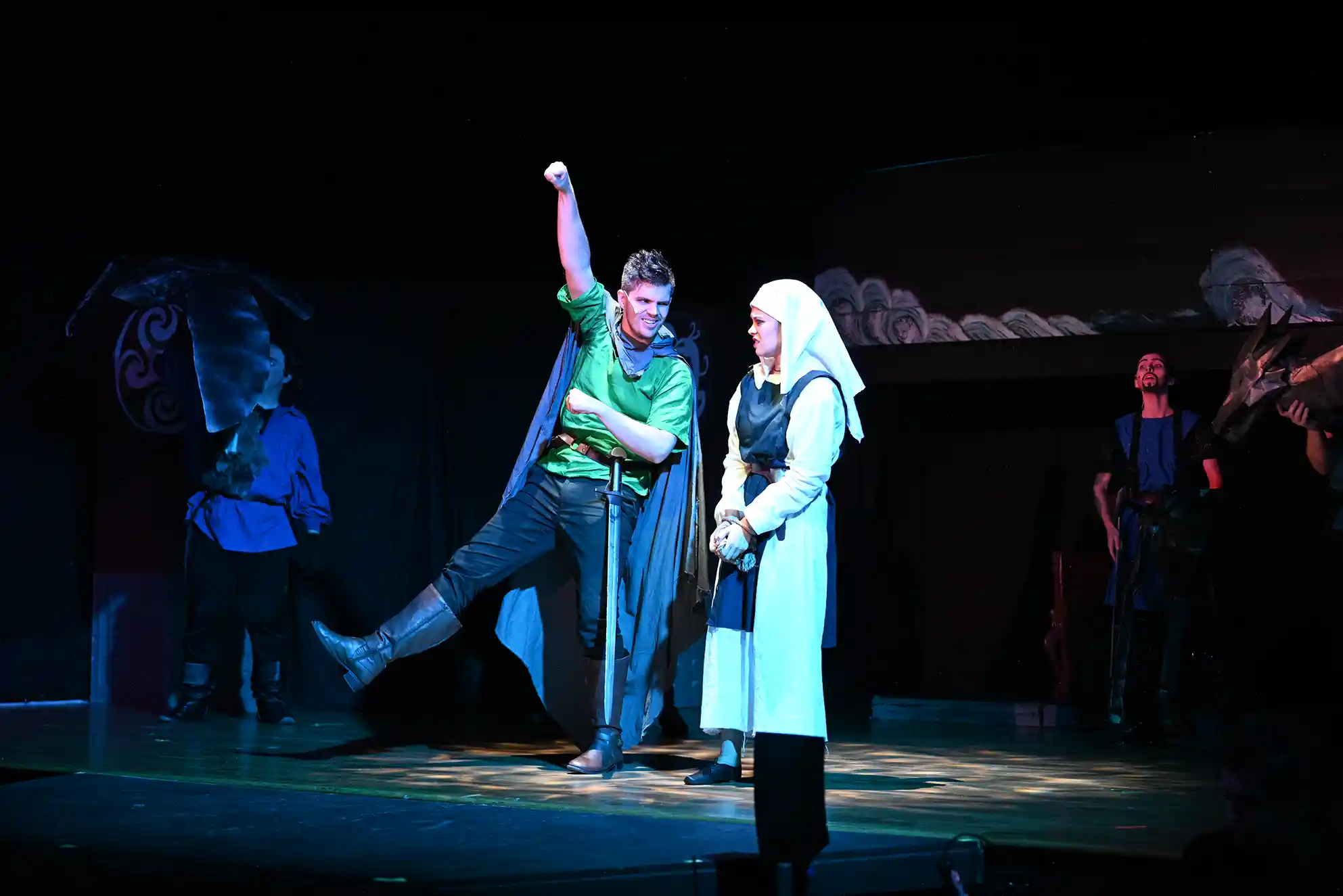
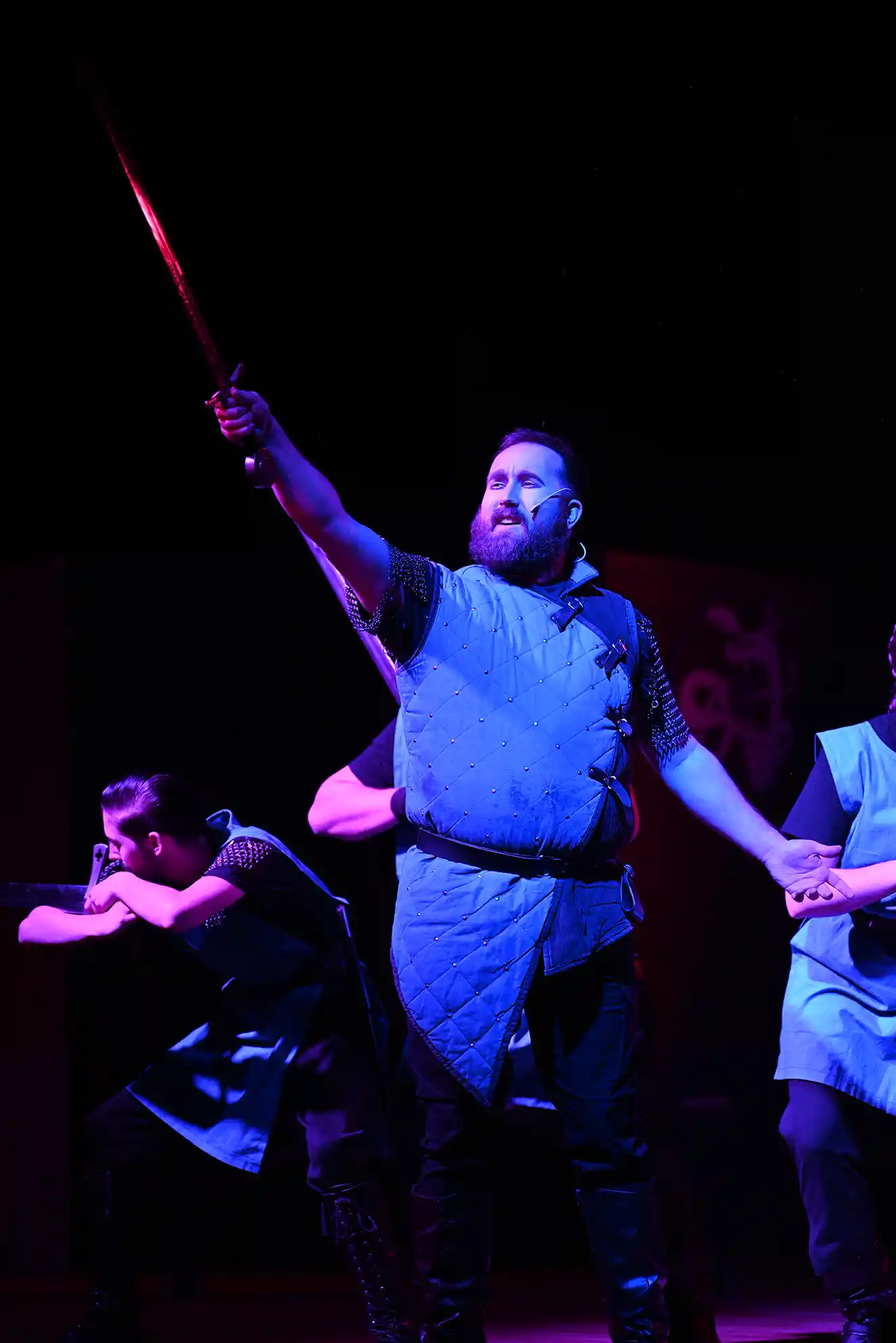
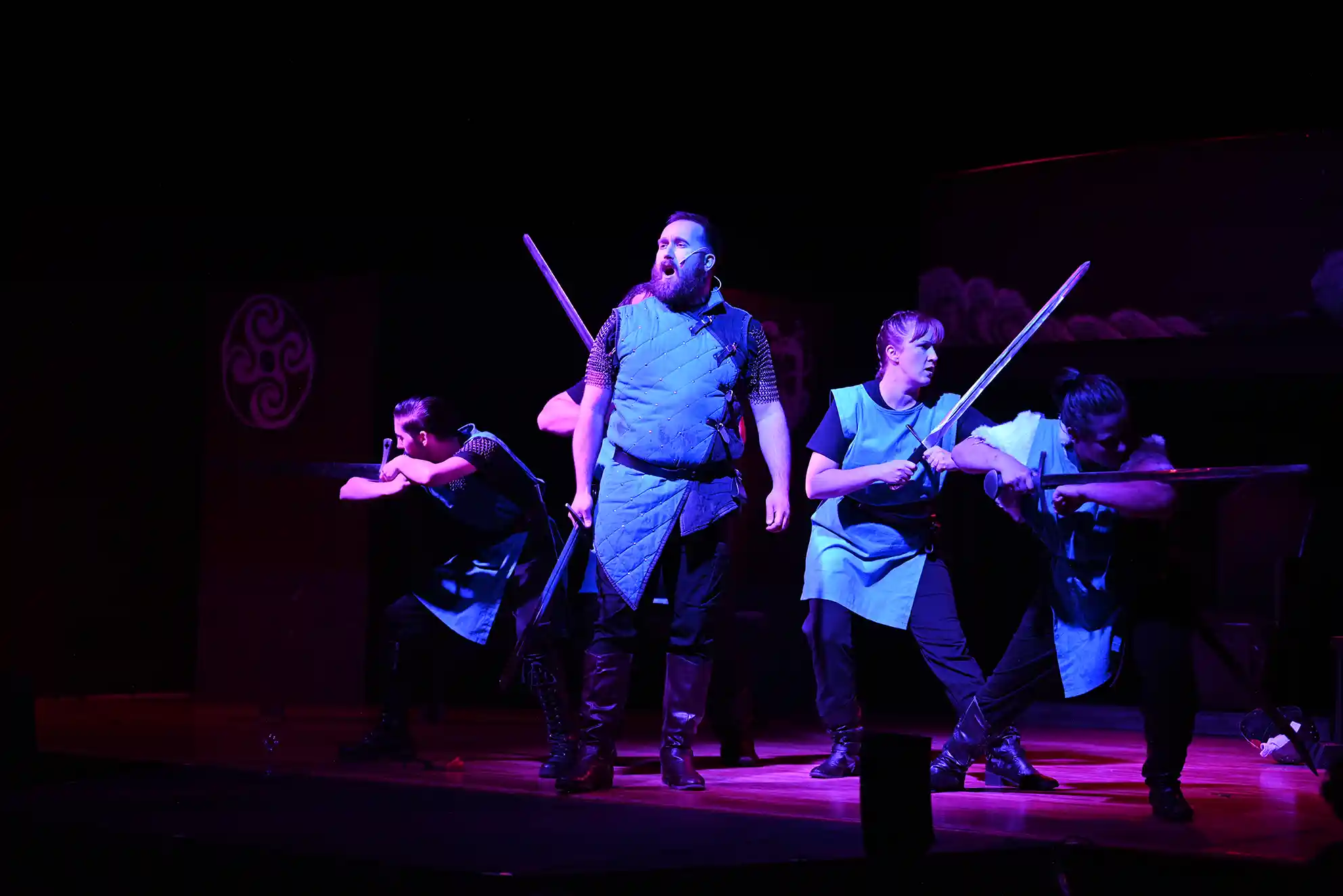
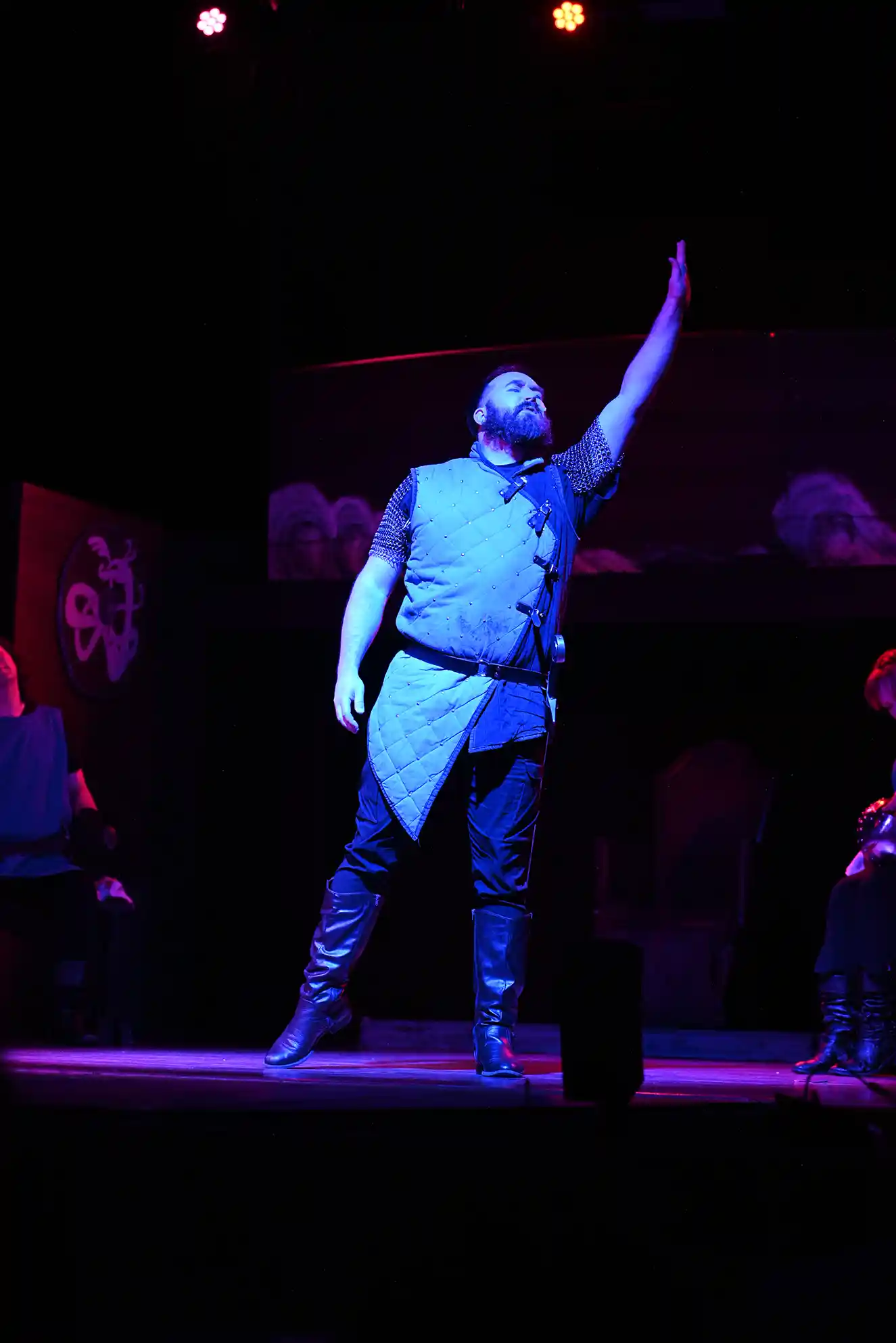
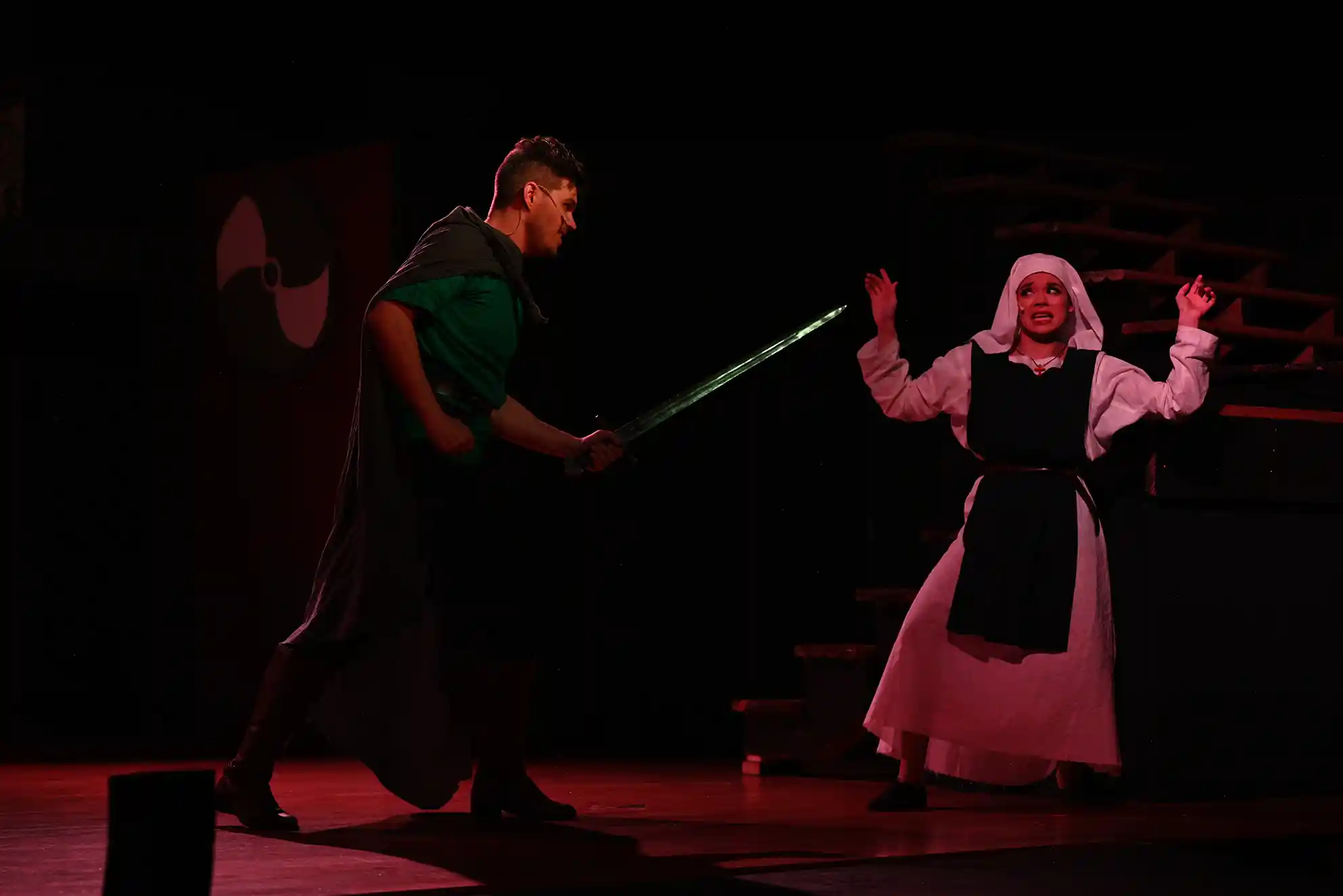
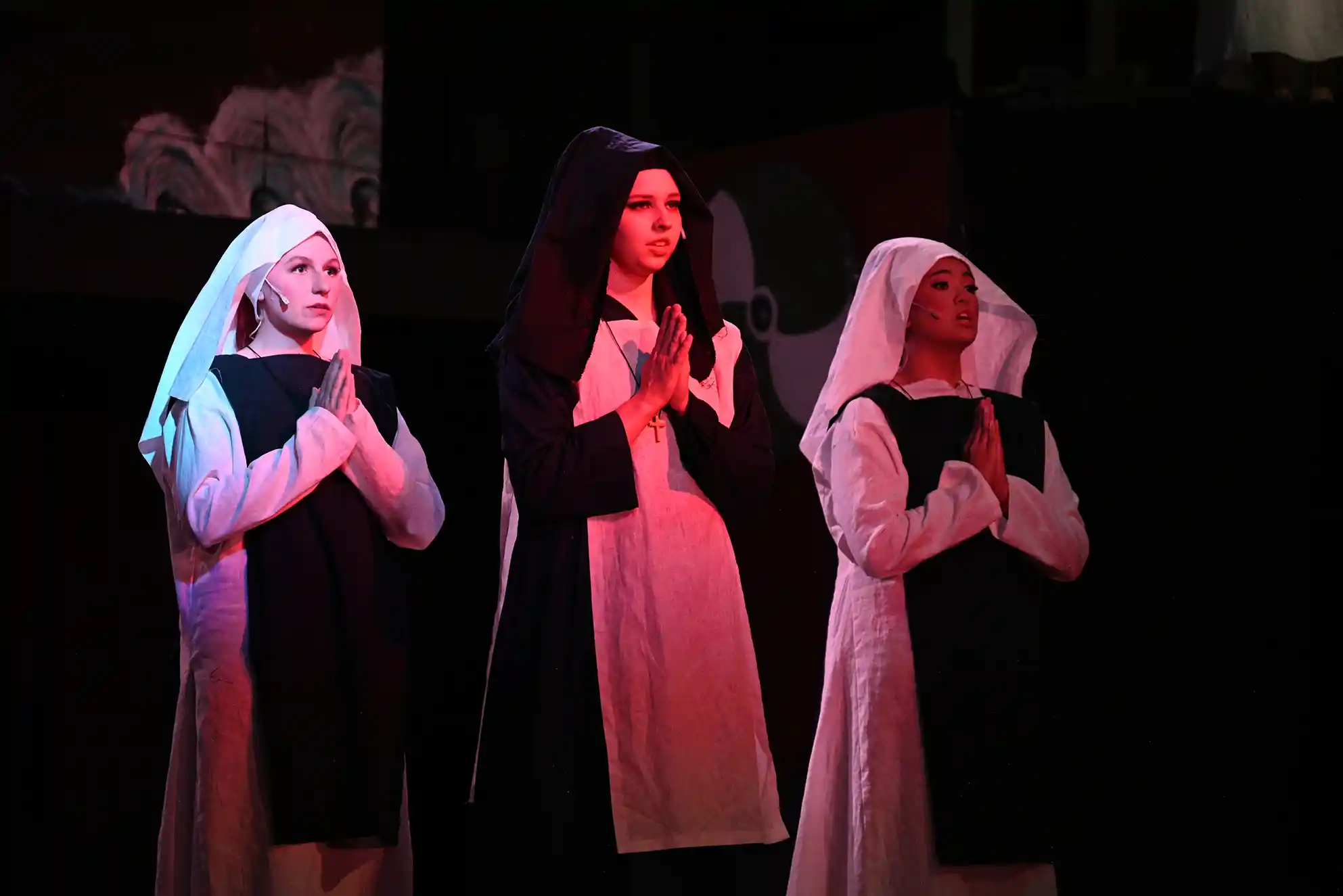
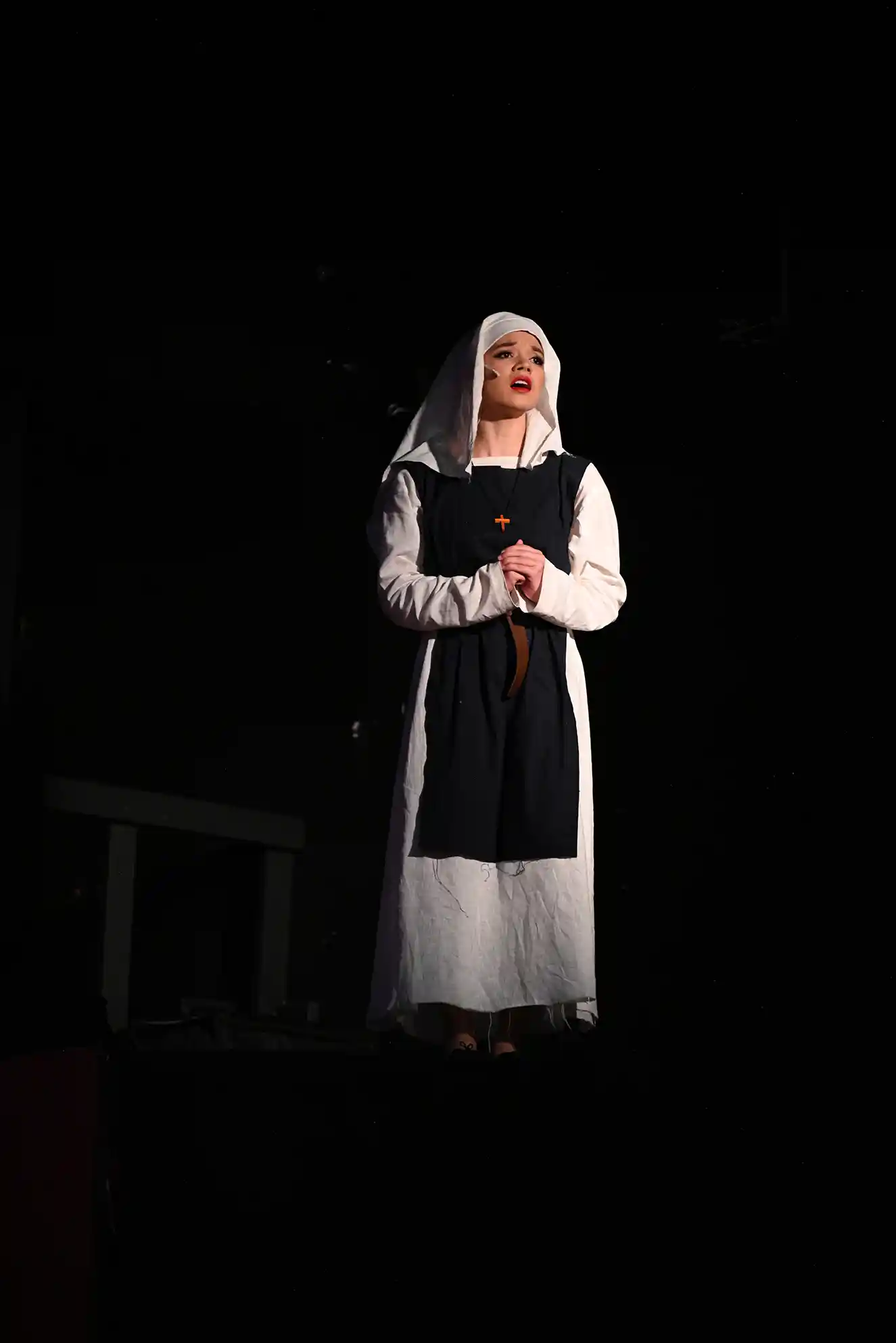
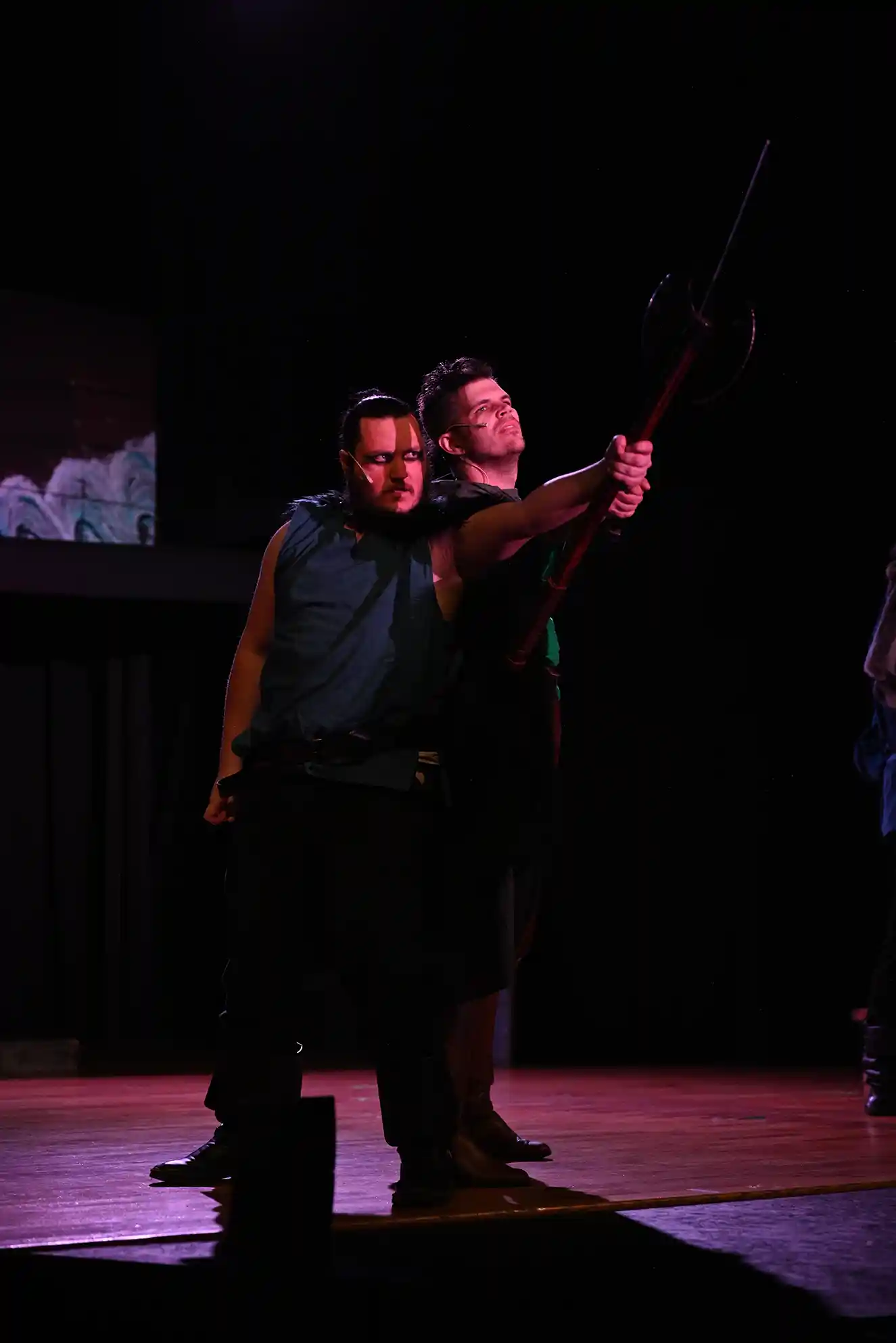
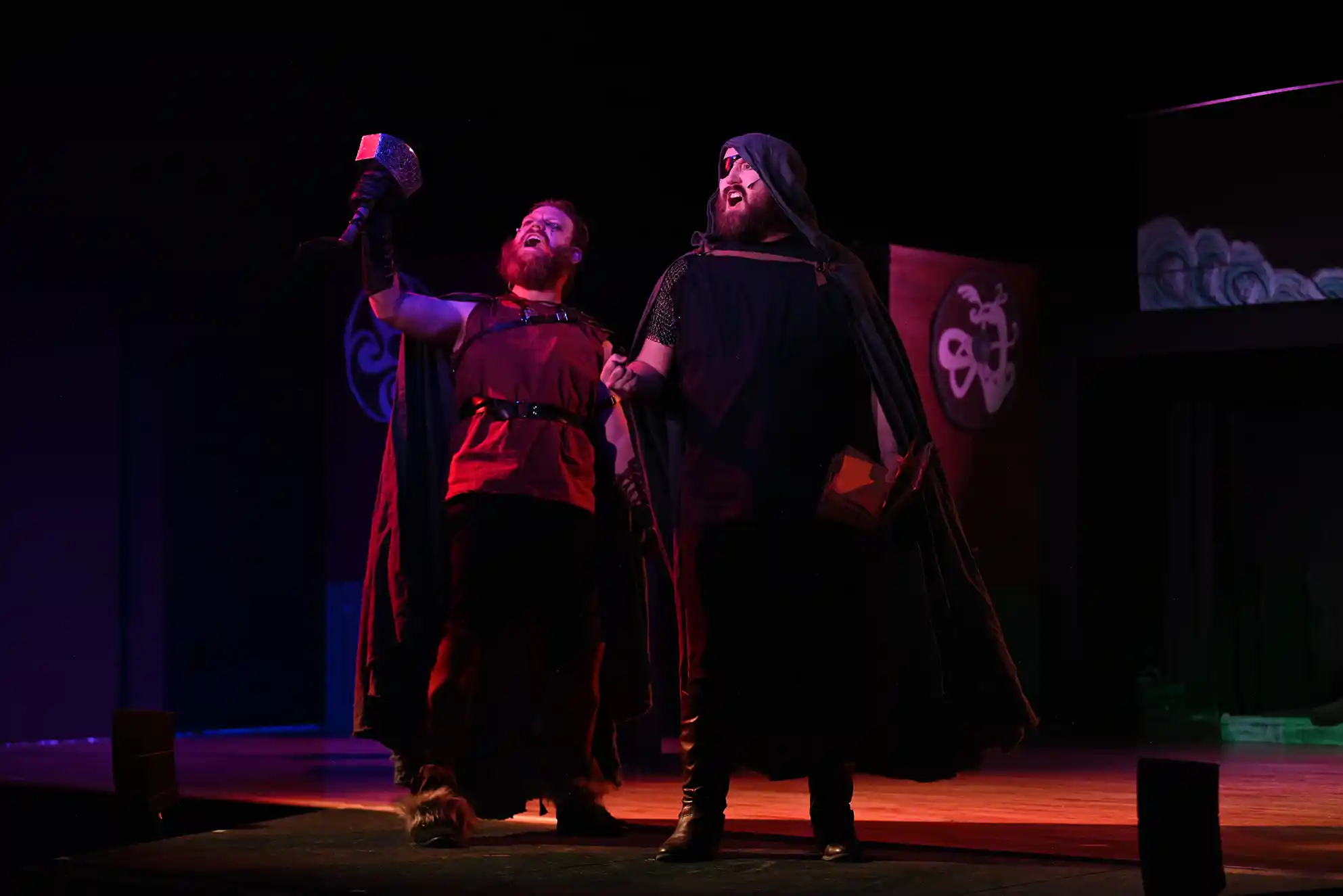






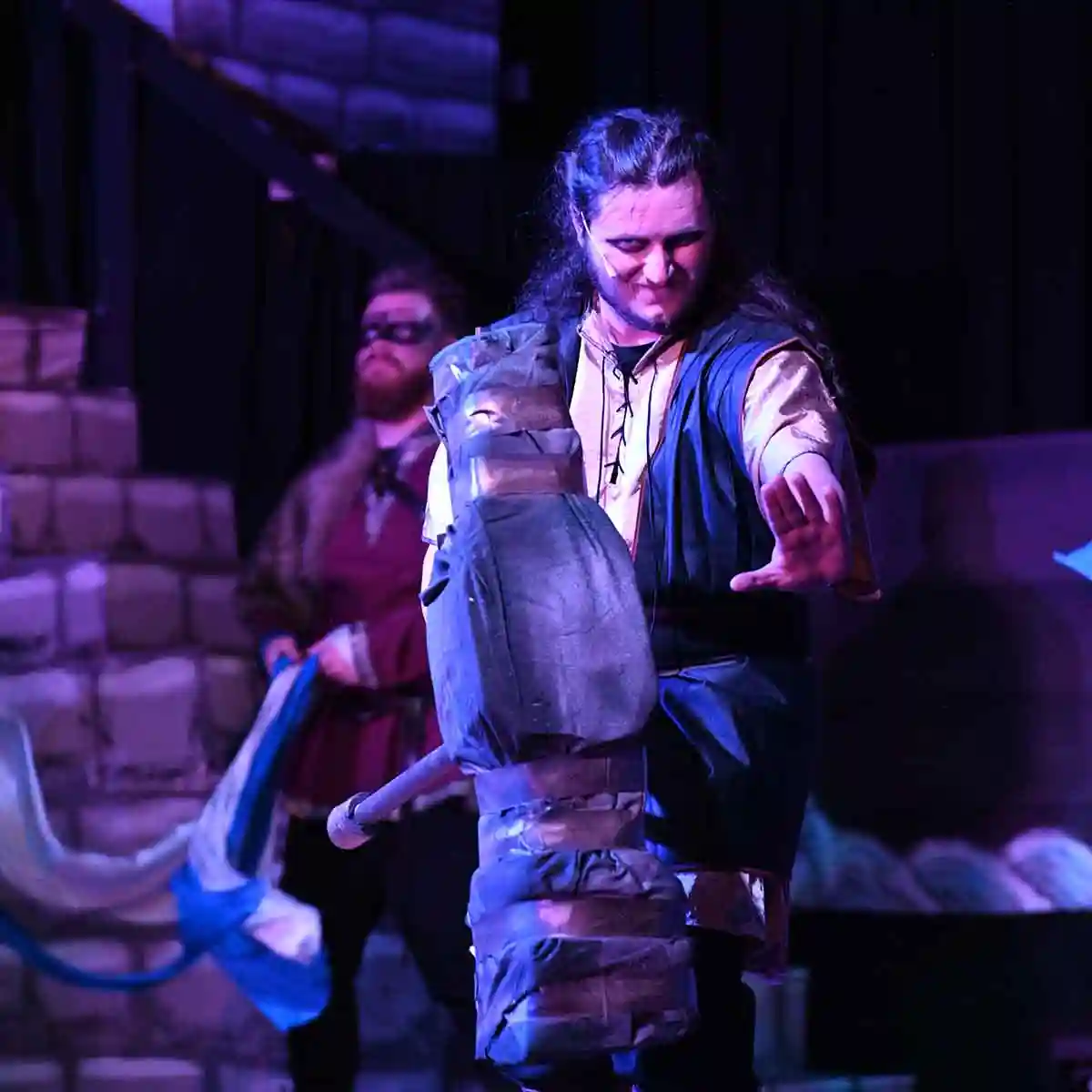


.77402af.webp)
.3a5c855.webp)
.afdfe0c.webp)
.8ca956e.webp)
.fcf7771.webp)
.70eca52.webp)
.348ed43.webp)
.3943e60.webp)
.1c428ee.webp)
.f6fa109.webp)
.1e9f5d1.webp)
.8ba419a.webp)
.5944d4a.webp)
.ac9dbcc.webp)
.7634ac2.webp)
.2805aa6.webp)
.aa40330.webp)
.fb72628.webp)
.1b0bbcb.webp)
.29c33f6.webp)
.6e6622e.webp)
.ef8d3fc.webp)
.395b872.webp)
.82cc3fd.webp)
.94d3274.webp)
.38925cd.webp)
.5252259.webp)
.c43e373.webp)
.173f552.webp)
.3262d3c.webp)
.1c21709.webp)
.a5ef1fe.webp)
.e30e71d.webp)
.3c0a04f.webp)
.64dc829.webp)
.d53268b.webp)
.f708f9a.webp)
.ed948a3.webp)
.1cc7586.webp)
.95f9eb0.webp)
.e358bc8.webp)
.a794253.webp)
.08940e8.webp)
.575024f.webp)
.321204f.webp)
.18d8c20.webp)
.ec2dd7c.webp)
.79e8eea.webp)
.14b23d3.webp)
.a86809c.webp)
.a0fbc1f.webp)
.d8de1ae.webp)
.7bf6a7f.webp)
.ac950fe.webp)
.4c780c4.webp)
.346c049.webp)
.eef8c40.webp)
.5216e11.webp)
.275c487.webp)
.4248479.webp)
.8261337.webp)
.9649a31.webp)
.9cf6360.webp)
.154edfe.webp)
.fa47c25.webp)
.d6b8d2f.webp)
